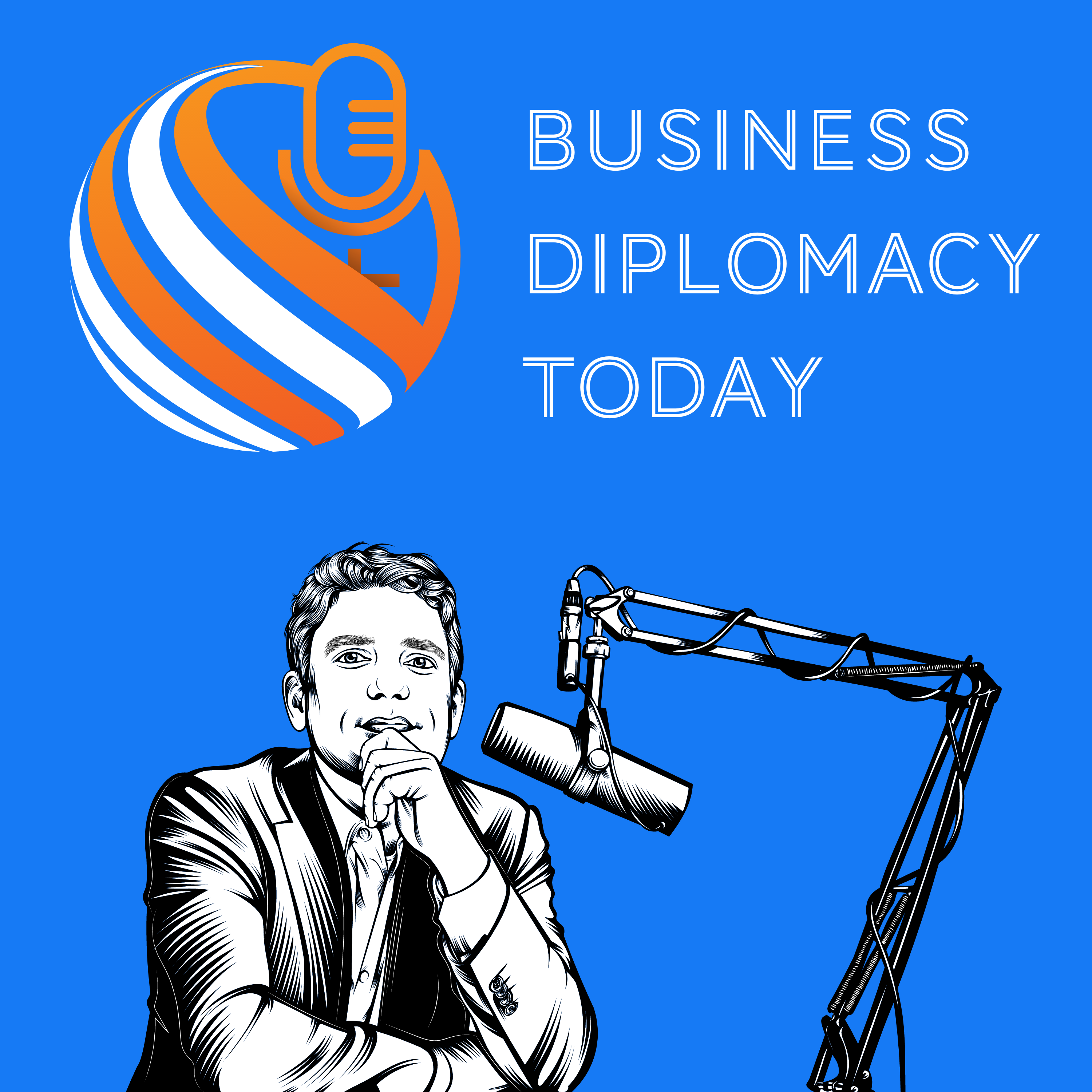Business Diplomacy Today
Sponsored and presented by the Indo-German Centre for Business Excellence, the podcast brings international relations and geopolitics to the business world. We live in a dynamic world where business, government, and society converge. Today, every business leader must be a savvy player in the public arena. Geopolitical events, new regulations in other markets, natural disasters, changing public perceptions, etc., directly impact a company’s future, even if they happen far away. Business Diplomacy Today addresses contemporary international relations and geopolitics, looking at the issues from a business perspective. It helps business leaders anticipate changing political and societal trends, build and le...
Online Voting
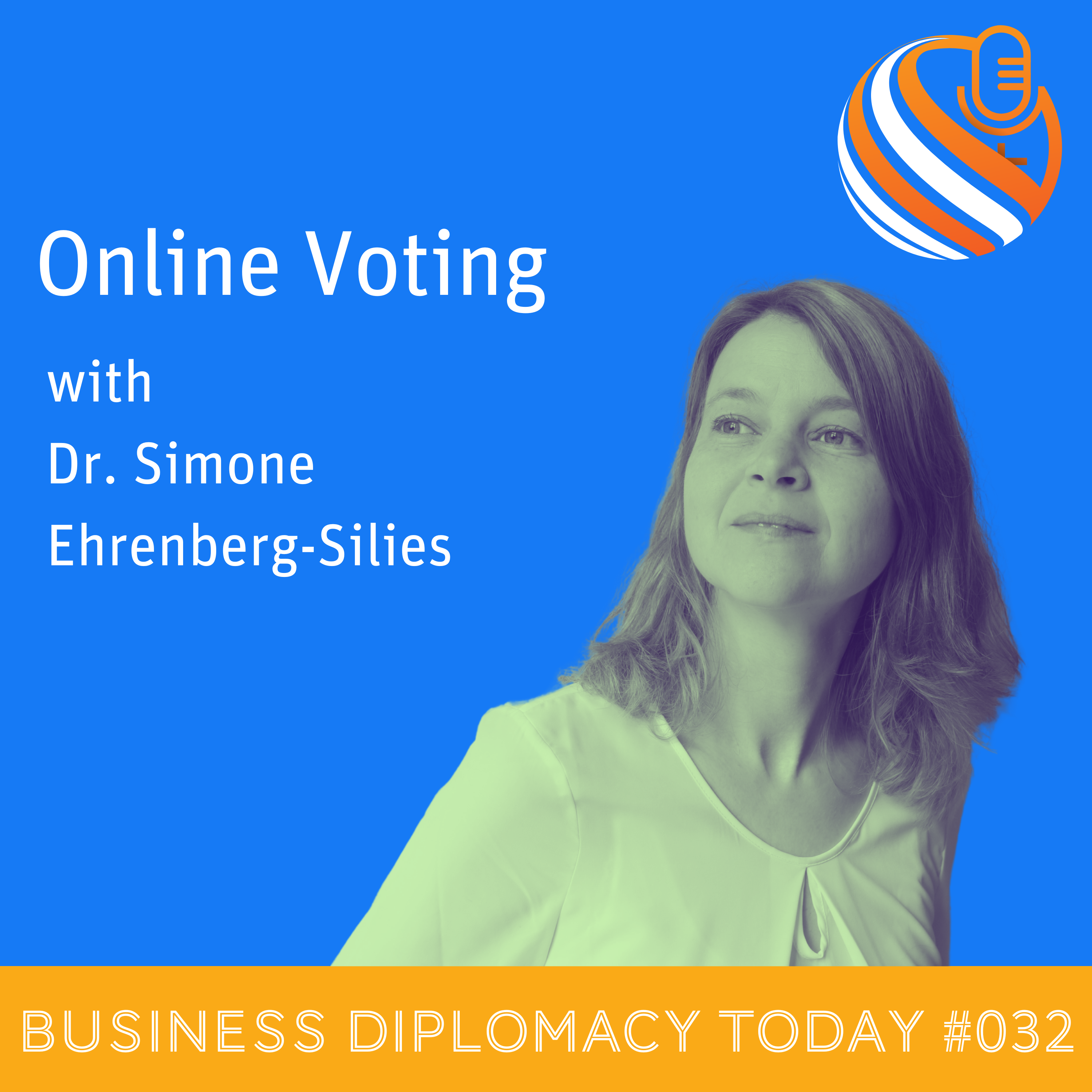
In this episode of Business Diplomacy Today, host Matthias Catón discusses the topic of online voting with Dr. Simone Ehrenberg-Silies, a senior consultant at the Institute for Technology and Innovation at VDI/VDE-IT. The conversation begins with a definition of online voting, differentiating it from traditional and electronic voting. The discussion delves into the reluctance of many countries to adopt online voting because of the risks of cyberattacks and manipulation, highlighting the vulnerability and potential loss of trust in the election process.
Simone notes that online voting offers some advantages, such as better accessibility, error-free vote c...
The Global Risks Report 2024
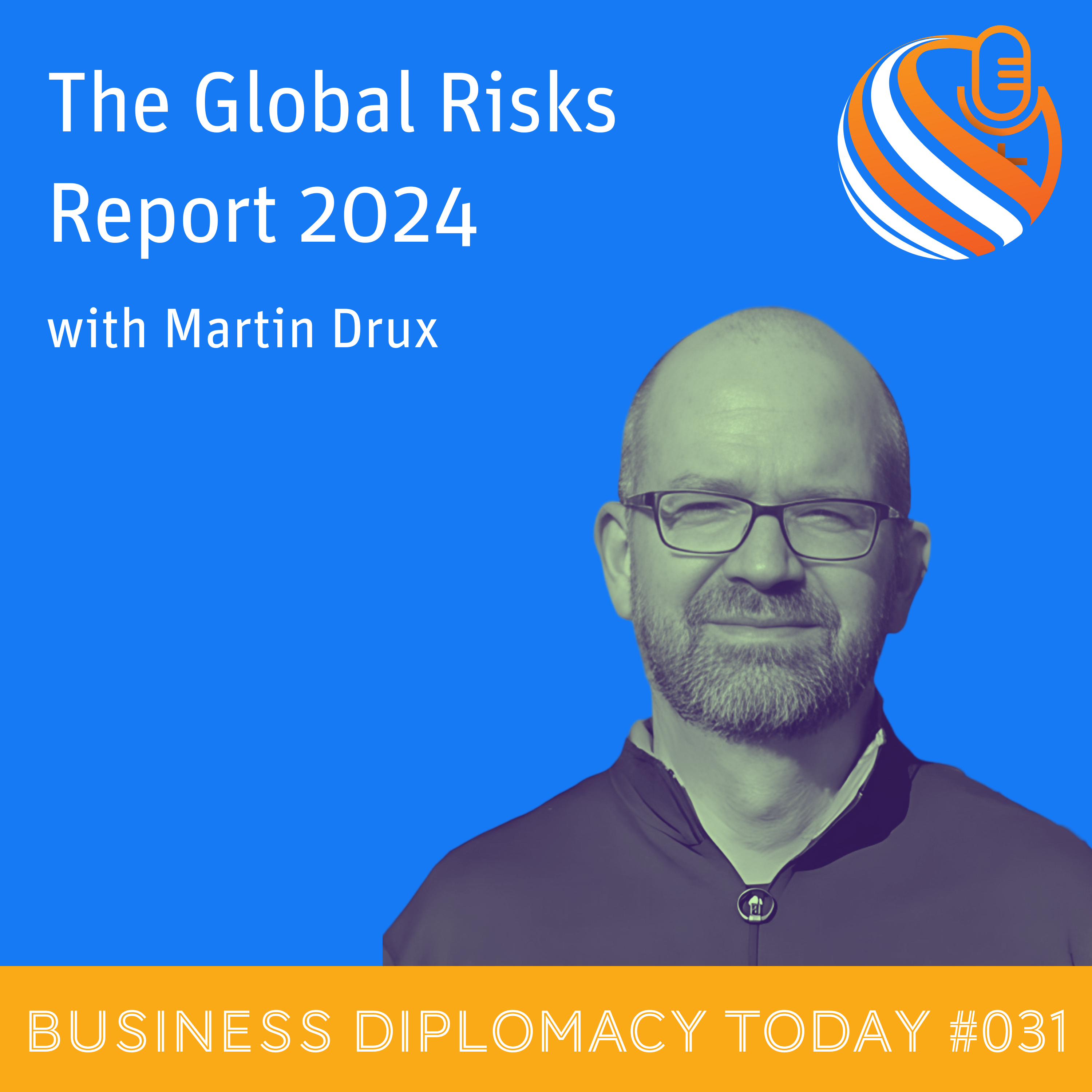
In this episode of Business Diplomacy Today, guest Martin Drux from Marsh McLennan delves into lessons learned from the COVID-19 pandemic and the importance of businesses preparing for future events like the permafrost virus. Host Matthias Catón discusses technology’s role in risk assessment, citing Google’s use of search data to track flu outbreaks. Drux highlights how AI and technology can enhance risk prediction and data quality, especially in the insurance sector.
The episode addresses geopolitical risks such as power shifts, tensions in the Middle East, and China’s assertiveness, with Drux advocating for peaceful solutio...
Business Disruption and Change in 2024
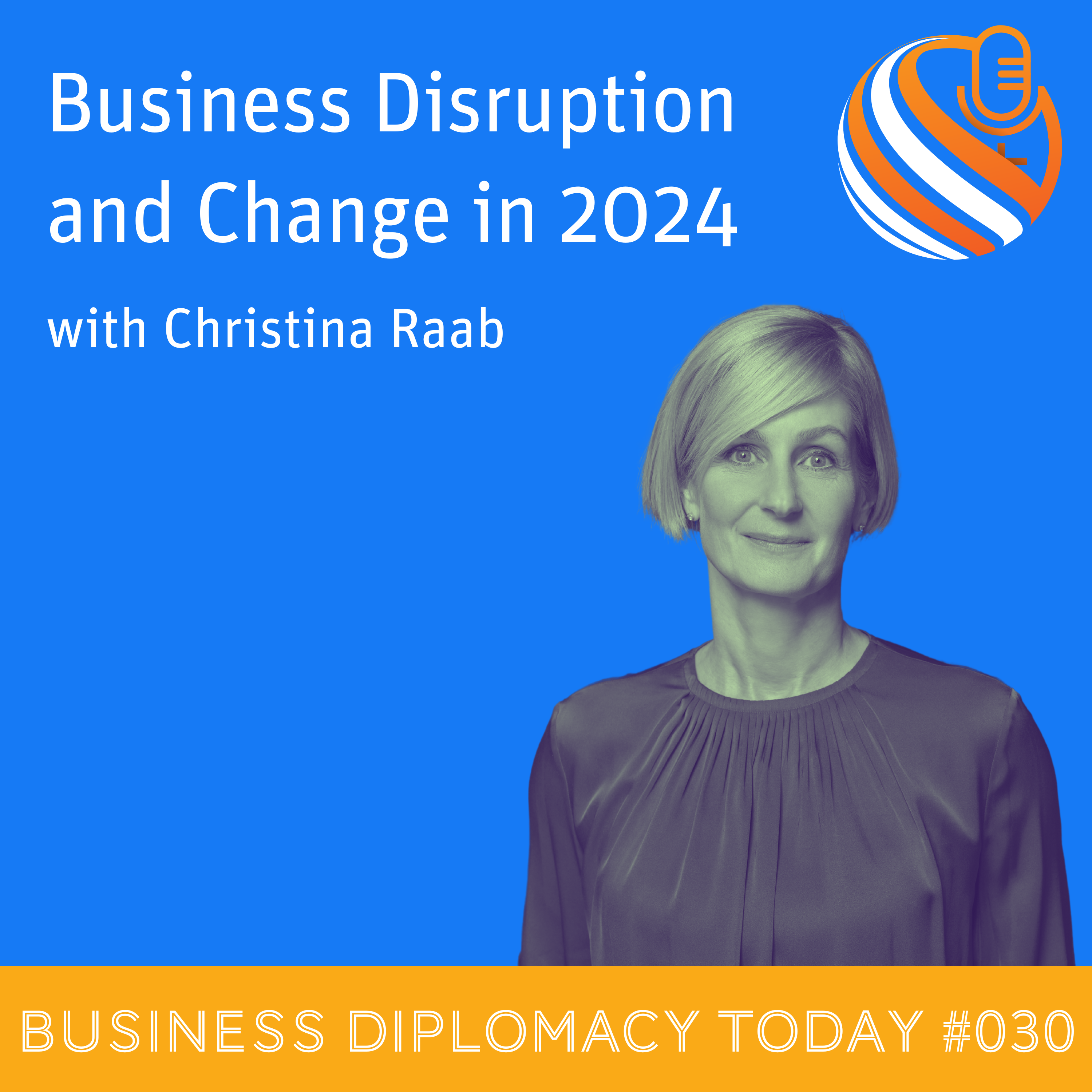
In this episode, host Matthias Catón join Christina Rabe, the Market Unit Lead for Accenture in Austria, Switzerland, and Germany. They delve into the Pulse of Change Index developed by Accenture.
Raab discusses the interconnectedness of technology, talent shortages, and demographic shifts, emphasizing the movement of talent from countries like India and the critical role of global talent pools. The discussion explores how artificial intelligence (AI) is poised to reshape various industries, starting with banking, capital markets, insurance, and software.
Raab underscores the importance of companies being proactive rather than reactive in adapting to t...
Imagining Asia After Europe
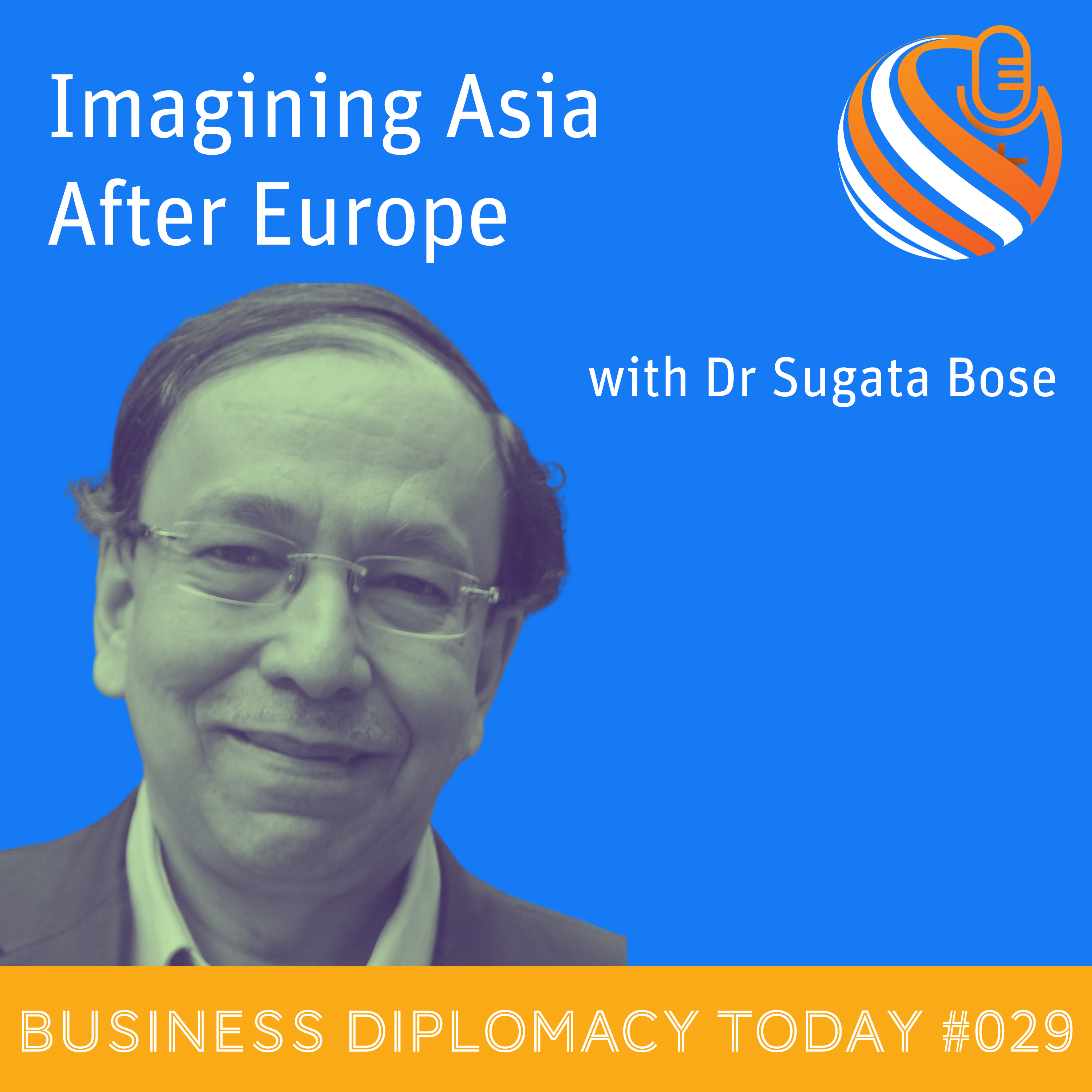
In Episode 29 Matthias Catón is joined by Sugata Bose, Gardiner Professor of Oceanic History and Affairs at Harvard University. Following Sugata’s recent publication “Asia After Europe: Imagining a Continent in the Long Twentieth Century”, Matthias and him discuss the how Asia’s history has been defined by Europe and what the current century brings.
Matthias and Sugata’s discussion delve into history, identity and European focus in Asia; looking at ideas of Asian countries psot-independence, prospects of a multipolar region and Asia’s need to detach themselves from a Eurocentric vision of universalism.
With Sugata’s...
Achieving Financial Equality
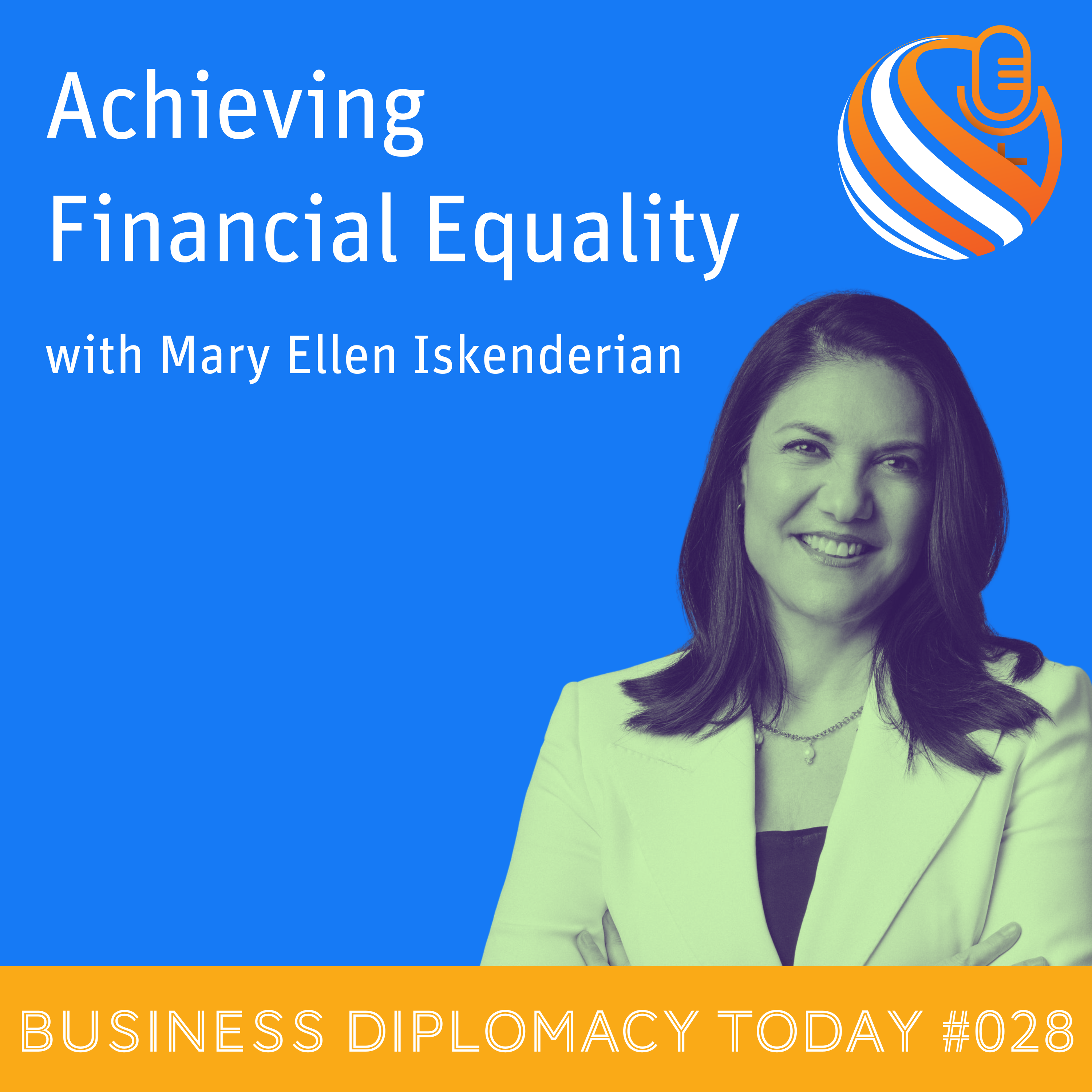
In Episode 28 of Business Diplomacy Today, host Matthias Catón is joined by Mary Ellen Iskenderian, President and CEO of Women’s World Banking. Matthias and Mary Ellen examine the persistent gender gap in financial inclusion and its linkages to digital inclusion.
Matthias and Mary Ellen begin their conversation by analysing why finance is not optimised for women, looking at the lack of access to financial services for women and the intricate connection of financial equality and digital inclusion. Using India as a case study, Matthias and Mary Ellen illustrate the importance of implementing digital public infrastructure tha...
The EU AI Act

In Episode 27 of Business Diplomacy Today, host Matthias Catón is joined by Till Klein, Head of Trustworthy AI at appliedAI. Matthias and Till explore the forthcoming EU AI Act, including an investigation of its core principles and implications for businesses.
Their conversation begins by looking at key points of the EU AI Act, including the EU’s risk-based approach, where it tries to classify certain AI practices into four categories. Matthias and Till discuss if such an act will hinder bringing innovation to the European Union due to its requirements around data governance, risk management, and acc...
Geopolitical Intelligence and Corporate Planning

In Episode 26, host Matthias Catón is joined by Lewis Sage-Passant, Global Head of Intelligence at Novo Nordisk and founder of EncyclopediaGeopolitica. Matthias and Lewis delve into the intricacies of how multinational corporations navigate geopolitics and international relations.
Matthias and Lewis investigate how the changing responsibility of security intelligence teams and how, in a corporate environment, this is transforming into a strategic direction – how does geopolitics work? What implications does this have on a business?
Empirically, Lewis explains how geopolitic events affect different sectors of a business, such as supply-chains, access and affordability to raw mat...
US-German Transatlantic Relations
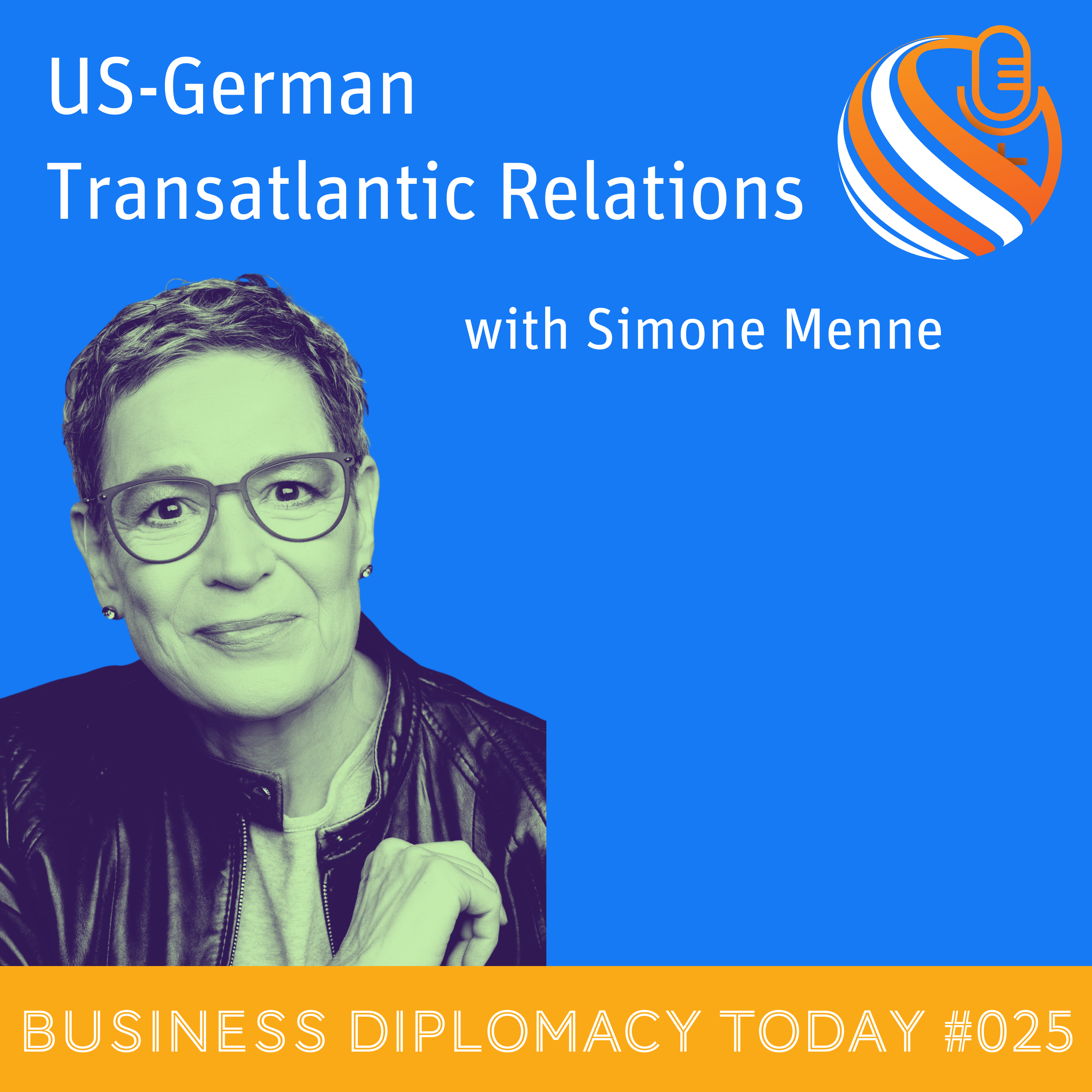
In Episode 25 host Matthias Catón is joined by Simone Menne, President of the American Chamber of Commerce in Germany. In their discussion, Matthias and Simone address the intricacies of transatlantic relations between the US and Germany and how this relationship is shaped by geopolitics.
Following themes of economics, politics and international relations, Matthias and Simone discuss the current stand of the transatlantic relationship and the significance of US-German partnerships; notably in the context of the automotive and pharmaceutical industries. As the US prepares for the 2024 election, the episode investigates the potential outcome and the rise of r...
The Digital Euro
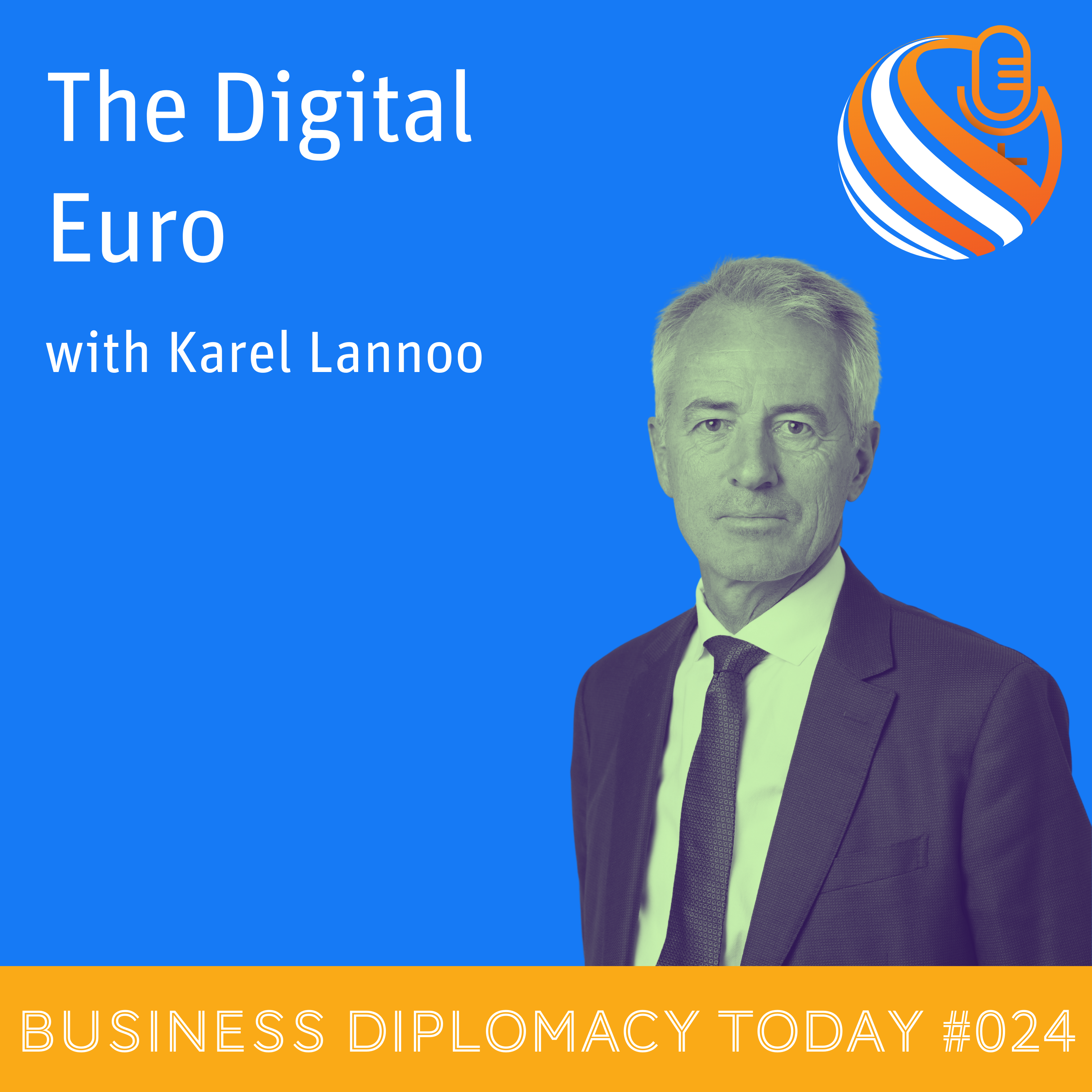
In Episode 24 of Business Diplomacy Today, host Matthias Catón is joined by Karel Lannoo, CEO of the Centre for European Policy Studies (CEPS). In their discussion, Matthias and Karel dive into the complexities of implementing a digital currency and its impact on the financial landscape; in this episode, specifically on the case of the Eurozone and the Digital Euro.
Covering an array of compelling topics, Matthias and Karel discuss the motivations of central banks to embrace digital currencies and the evolving landscape of digital payments. Karel shares thought-provoking arguments on the privacy concerns of implementing a d...
2024 Trends to Watch
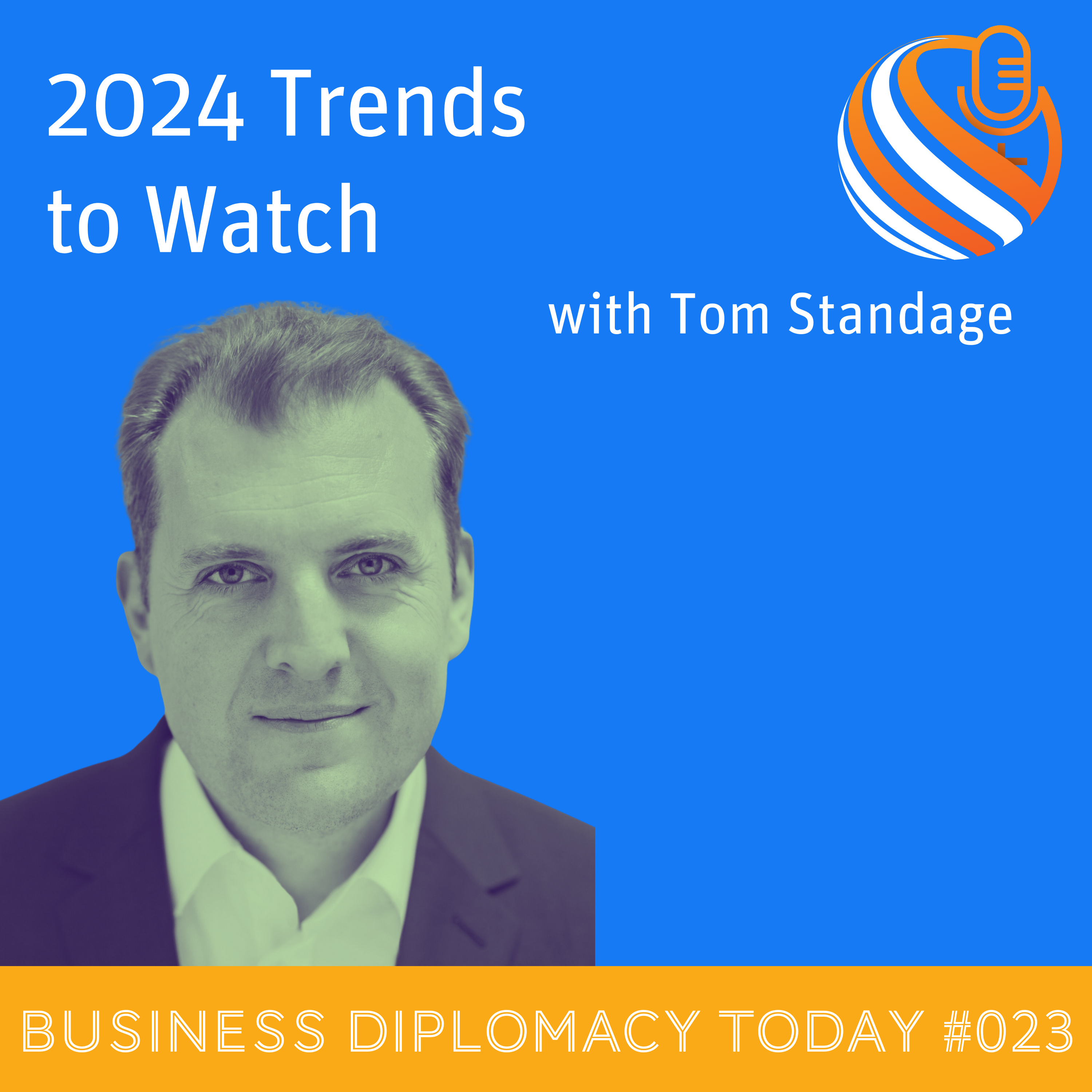
In Episode 23 of Business Diplomacy Today, host Matthias Catón is joined by Tom Standage, Deputy Editor of The Economist and editor of its future-gazing annual, The World Ahead. Timely, with the start of the new year, Matthias and Tom delve into global trends and predictions for 2024; as well as their implications for businesses and global affairs.
To understand the metholodogy, Matthias and Tom begin by discussing how forecasting is developed and the necessity to analyse previous events and liaise with cross-departmental colleagues to look forward. Their conversation analyses both predictable events and forecasted events, ranging from G...
How Crises Shape Globalisation
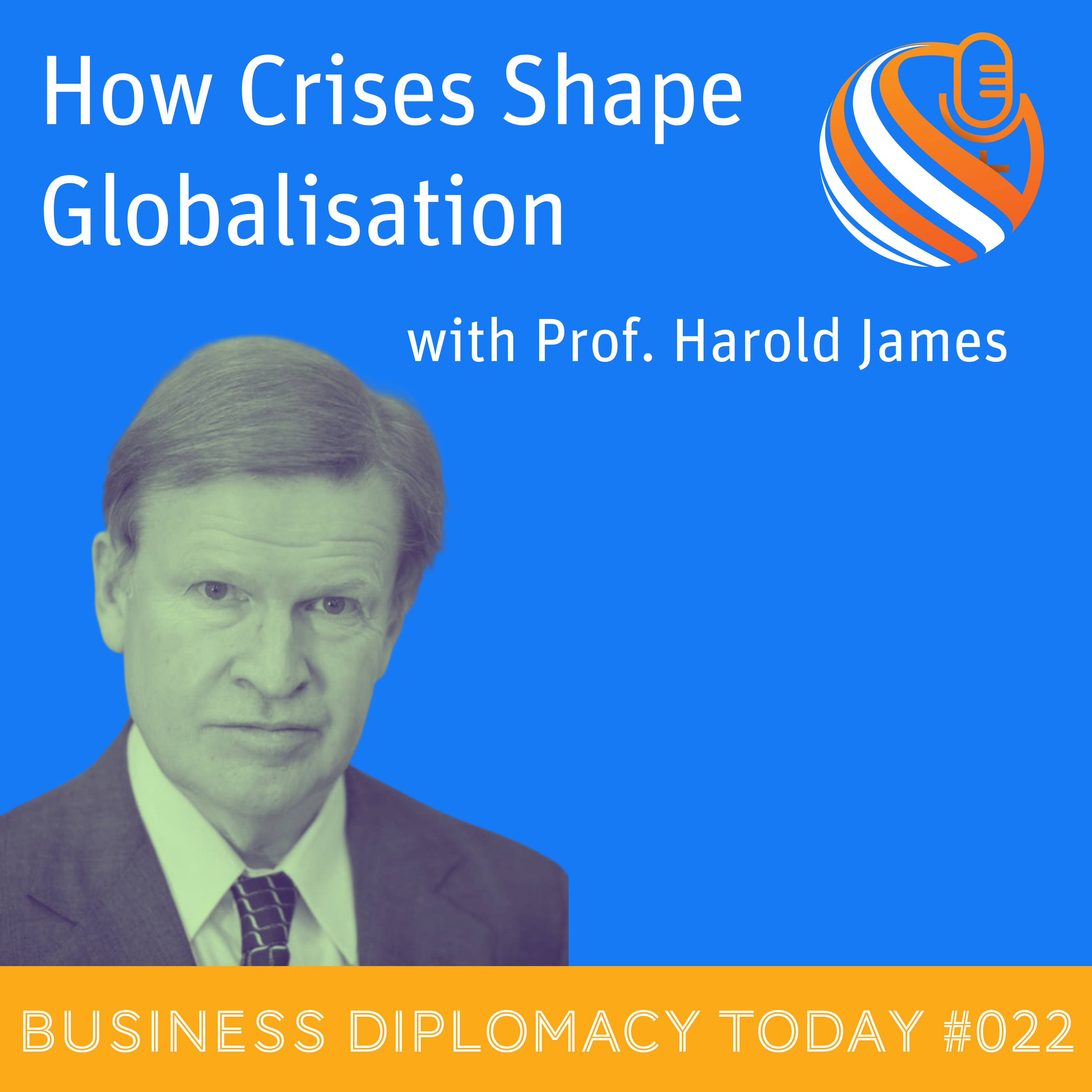
In Episode 22 of Business Diplomacy Today, host Matthias Catón is joined by Prof. Harold James, Professor of History and International Affairs at Princeton University. Drawing inspiration from Harold’s recent publication Seven Crashes: The Economic Crises That Shaped Globalisation (2023), Matthias and Harold discuss seven major turning points in the history of globalisation. Their conversation ... Read more
The Rise of Middle Powers
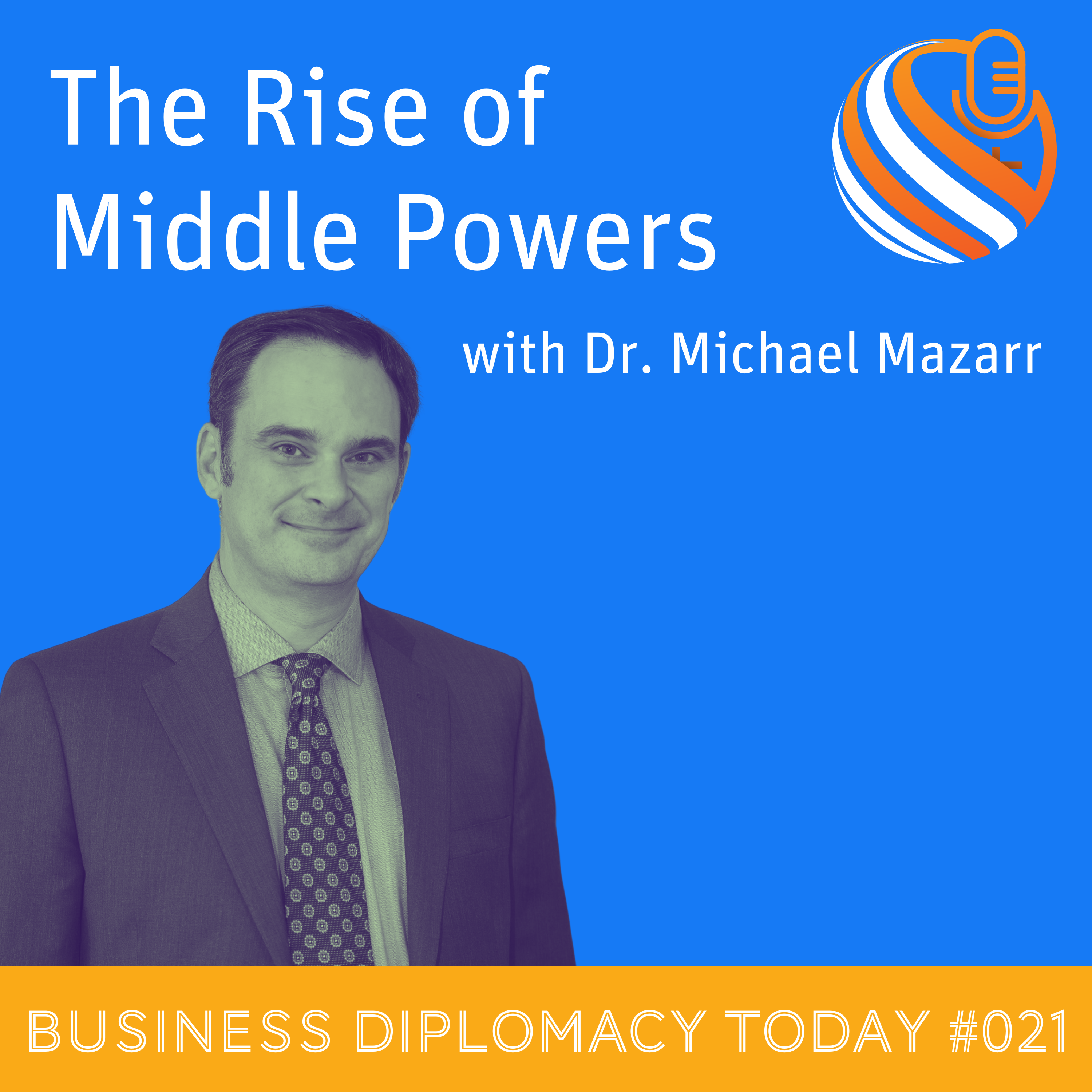
Episode 21 of Business Diplomacy Today covers the emerging significance of middle powers. Host Matthias Catón is joined by Michael Mazarr, Senior Political Scientist at the RAND Corporation. Matthias and Michael discuss how middle powers are rising and their impact on global trade and business environment. Beginning with definitions of middle powers, Michael explains the ... Read more
Social Inequality as a Business Risk: The Case of India

In Episode 20 of Business Diplomacy Today, host Matthias Catón is joined by Ashoka Mody, Charles and Marie Robertson Visiting Professor in International Economic Policy at the Princeton School of Public and International Affairs, Princeton University and author of “India is Broken: A People Betrayed, Independence to Today”. Matthias and Ashoka delve into how the ... Read more
Expert Influence in Policy- and Decision-Making
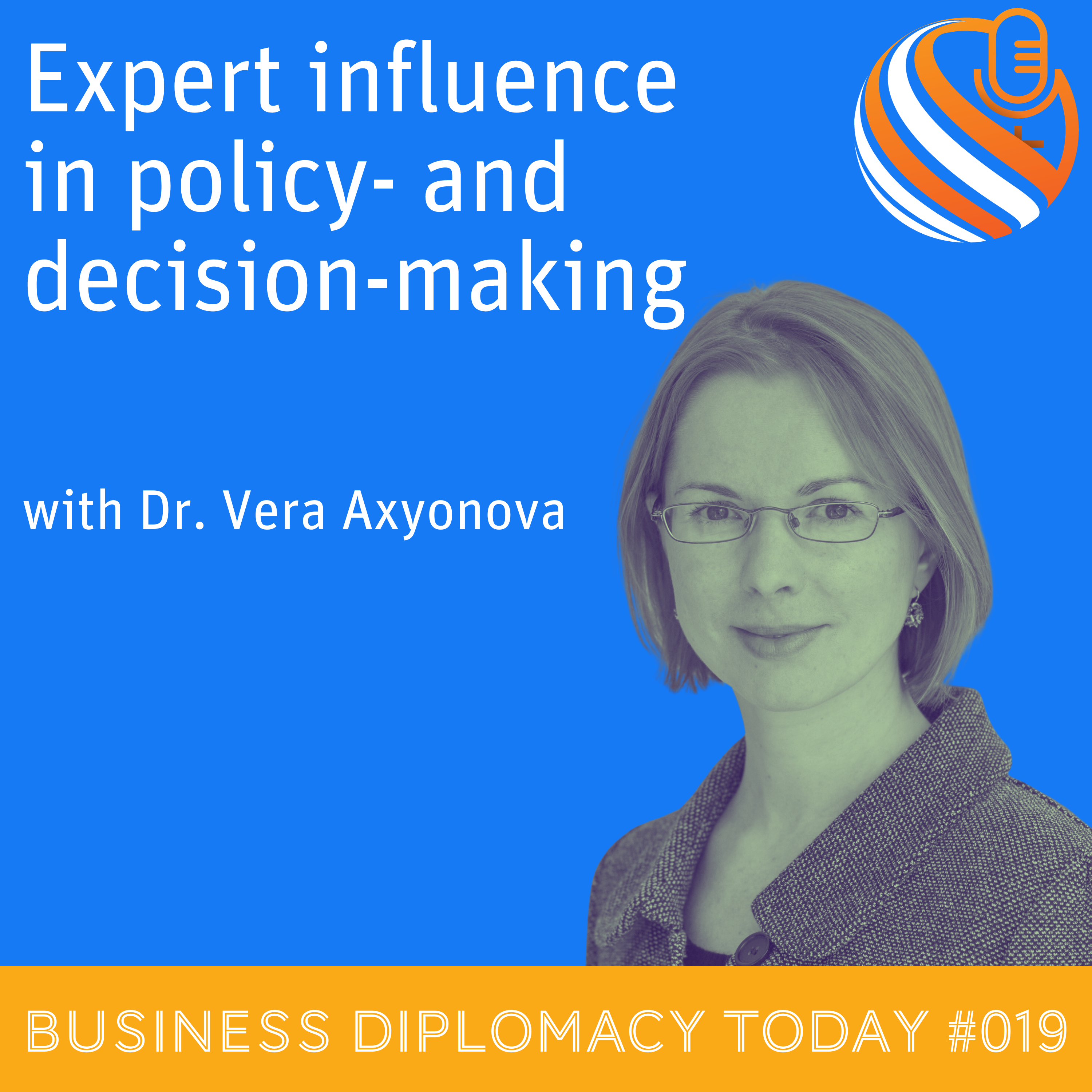
In Episode 19 of Business Diplomacy Today, host Matthias Catón is joined by Vera Axyonova, a Marie Skłodowska-Curie REWIRE Fellow at the University of Vienna and Principal Investigator of the project ‘Expert Knowledge in Times of Crisis – Uncovering Interaction Effects between Think Tanks, Media, and Politics’. Vera shares her expertise on the influence that ... Read more
Entrepreneurship in Fragile States
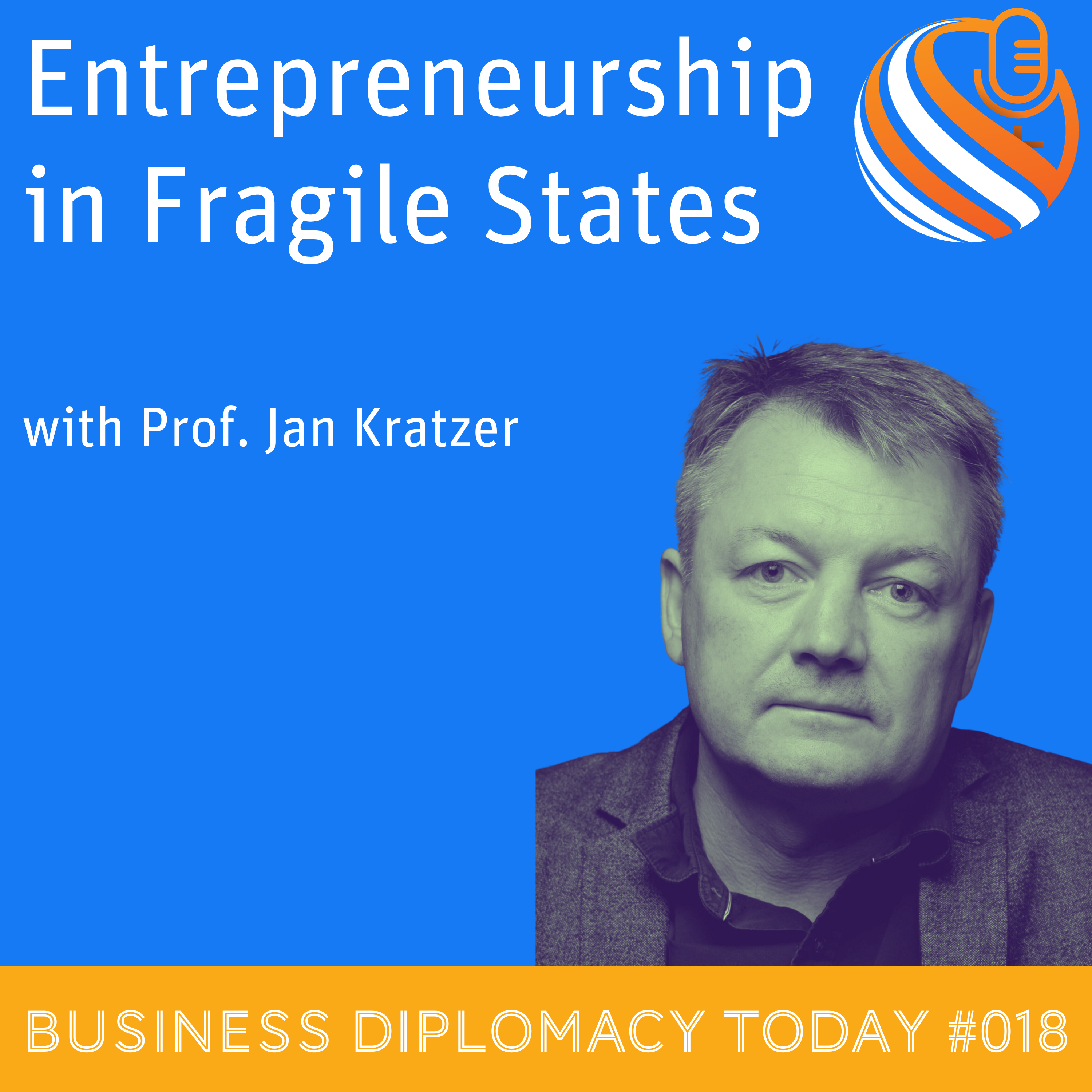
Jan Kratzer, Chaired Professor for Entrepreneurship and Innovation Management and Founder/Academic Director of Centre for Entrepreneurship (CfE) at Technische Universität Berlin, joins Matthias Catón in this episode. Jan shares his expertise on challenges for entrepreneurs in low-income countries, comparing them to high-income countries. As their discussion explores the concept of entrepreneurship in fragile states, Matthias ... Read more
The EU Critical Raw Materials Act
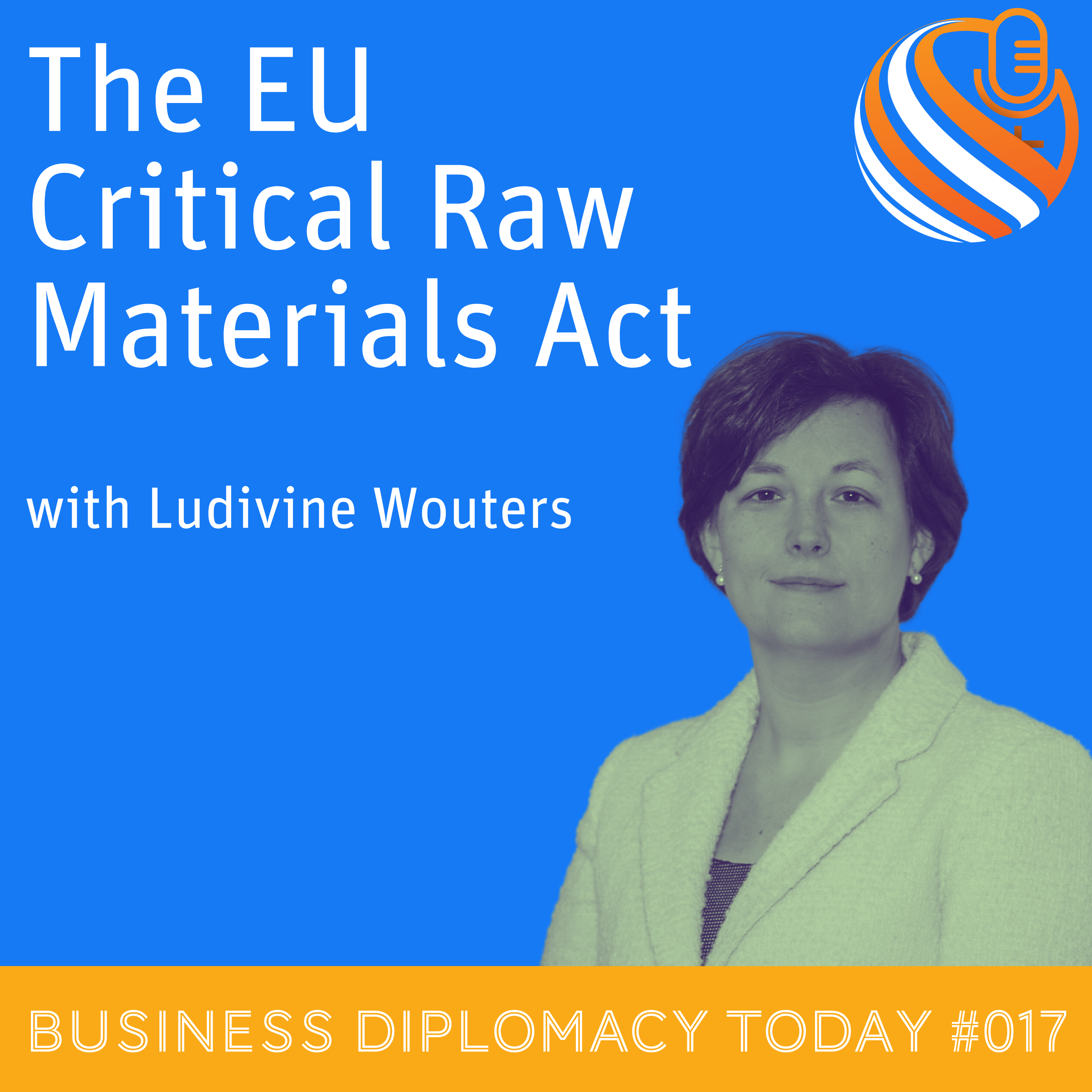
In episode 17 of Business Diplomacy Today, Matthias Catón is joined by Ludivine Wouters, Managing Partner of Latitude Five, an investment and advisory firm operating in emerging markets. Ludivine shares her expertise in the metals and mining industry, specifically concerning the EU Critical Raw Materials Act (CRM Act). Matthias and Ludivine explore the EU’s approach ... Read more
Corporate strategy in the age of global uncertainty and volatility
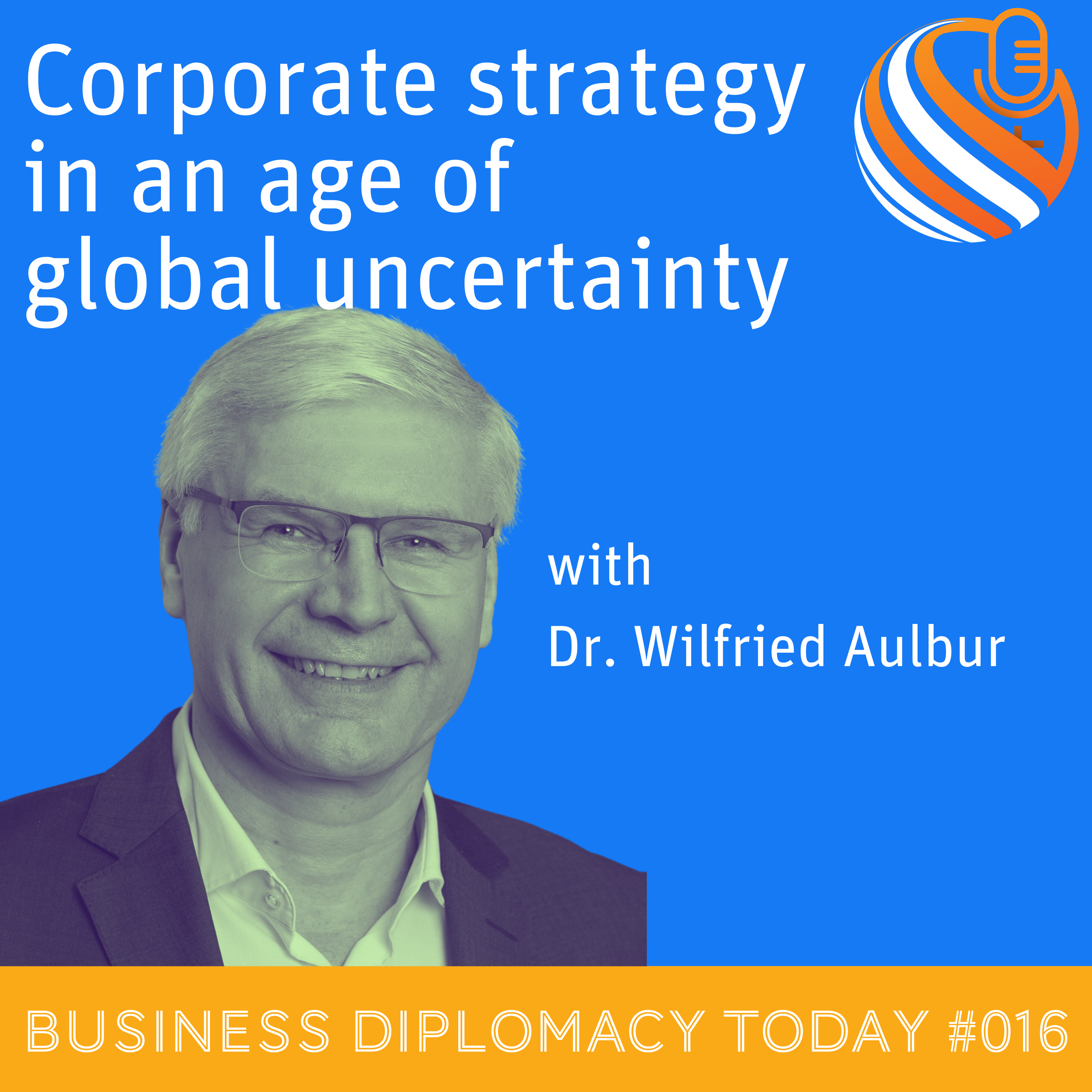
In this episode, host Matthias Catón and Wilfried Aulbur, Senior Partner of Roland Berger, explore the navigation and development of business strategies in a volatile and ever-changing world. Through topics of geopolitical relations, climate change, and technological innovation, Matthias and Wilfried discuss the importance of agility to transform business strategy and respond to uncertainties. Drawing ... Read more
Water Governance and International Security
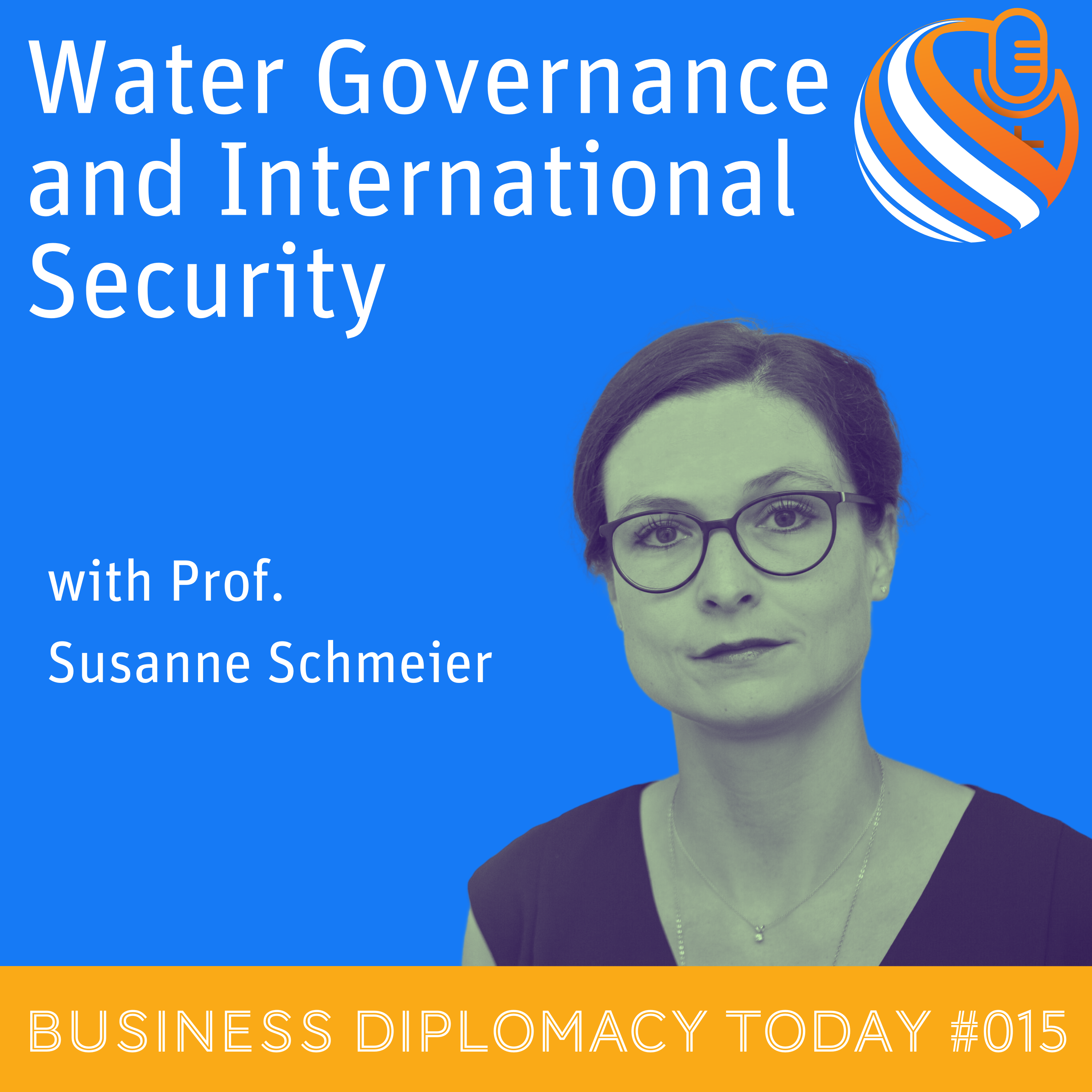
This episode of Business Diplomacy Today explores the topic of water security. Host Matthias Catón is joined by Susanne Schmeier, Head of the Water Governance Department and Associate Professor of Water Law and Diplomacy at IHE Delft. They discuss the global water crisis and its implications for meeting the 2030 Agenda, pollution issues, overuse, and ... Read more
Corporate Strategy and Political Risk
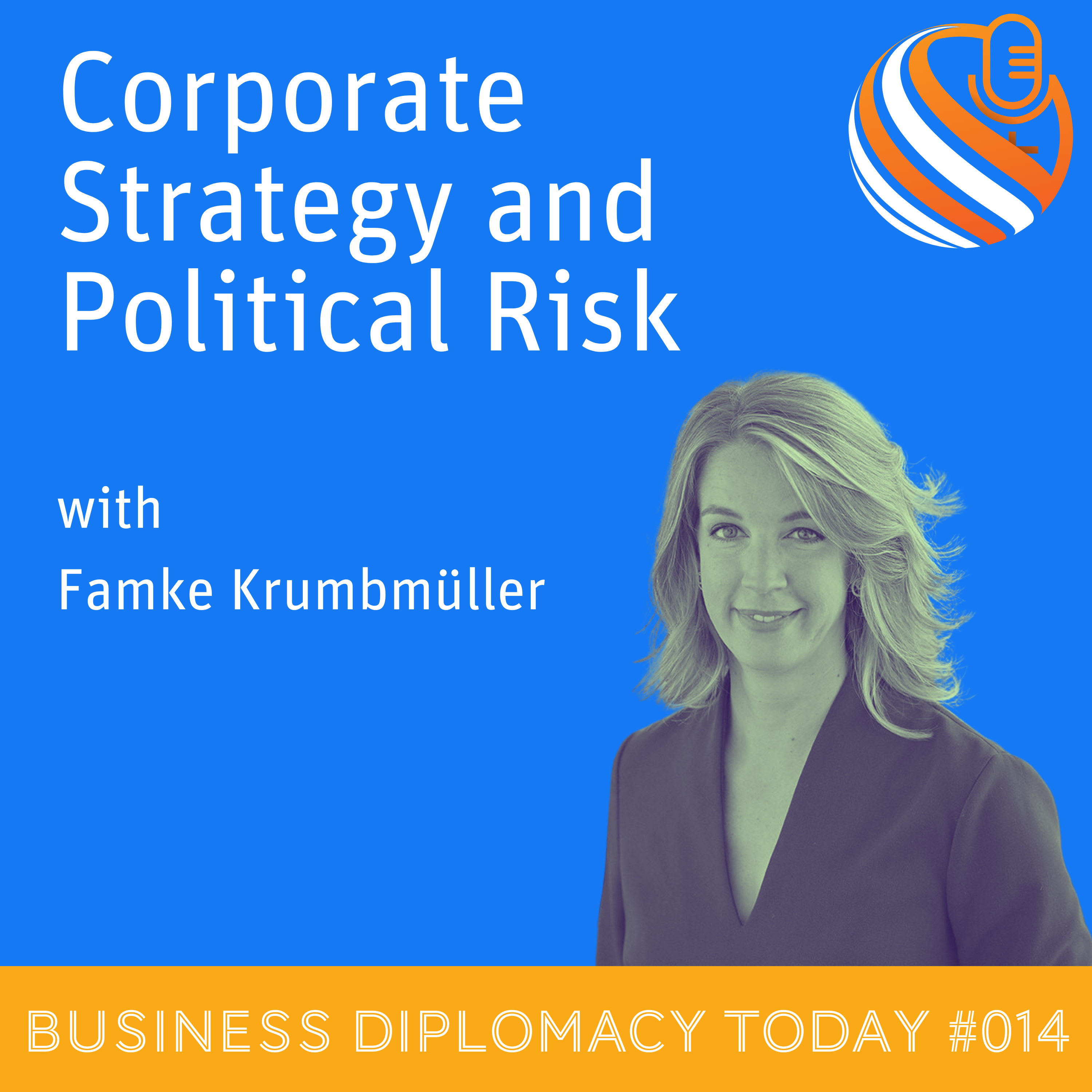
In this episode, Matthias Catón speaks with Famke Krumbmüller, Executive Director of the Geostrategic Business Group at EY, on building a robust corporate strategy in a volatile world. Famke introduces us to definitions and sub-categories of political and geopolitical risk and how companies can enhance their risk management protocols to be more prepared and expectant ... Read more
The migration governance complex
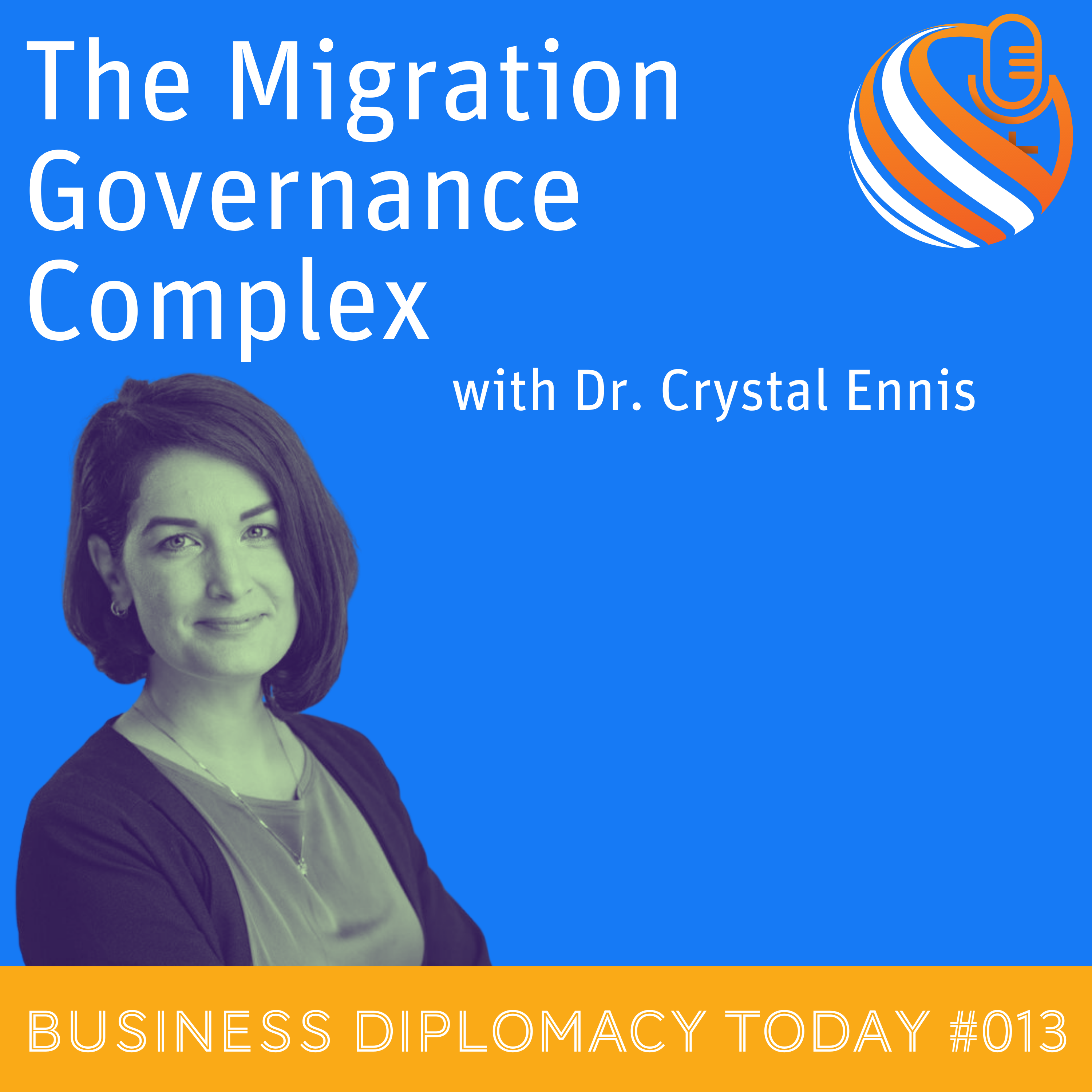
In this episode, Matthias Catón and Crystal Ennis discuss the migration governance complex, defined as how migration governance happens in practice and the various actors involved. Their discussion focuses on labor migration and examines its definitions, the fragmentation of migration governance, changing trends and geographical destinations of labor migration, and how we (individuals, organizations, and ... Read more
Lessons from the Munich Security Conference 2023
In this episode, Matthias Catón speaks with Sophie Eisentraut about the Munich Security Conference (MSC), the world’s leading forum for debating international security policy. The episode investigates the effectiveness and relevance of multilateral dialogues from a broader perspective and the trends we can see in the future of international cooperation. Matthias and Sophie compare their ... Read more
Why digital payments can help us achieve the Sustainable Development Goals
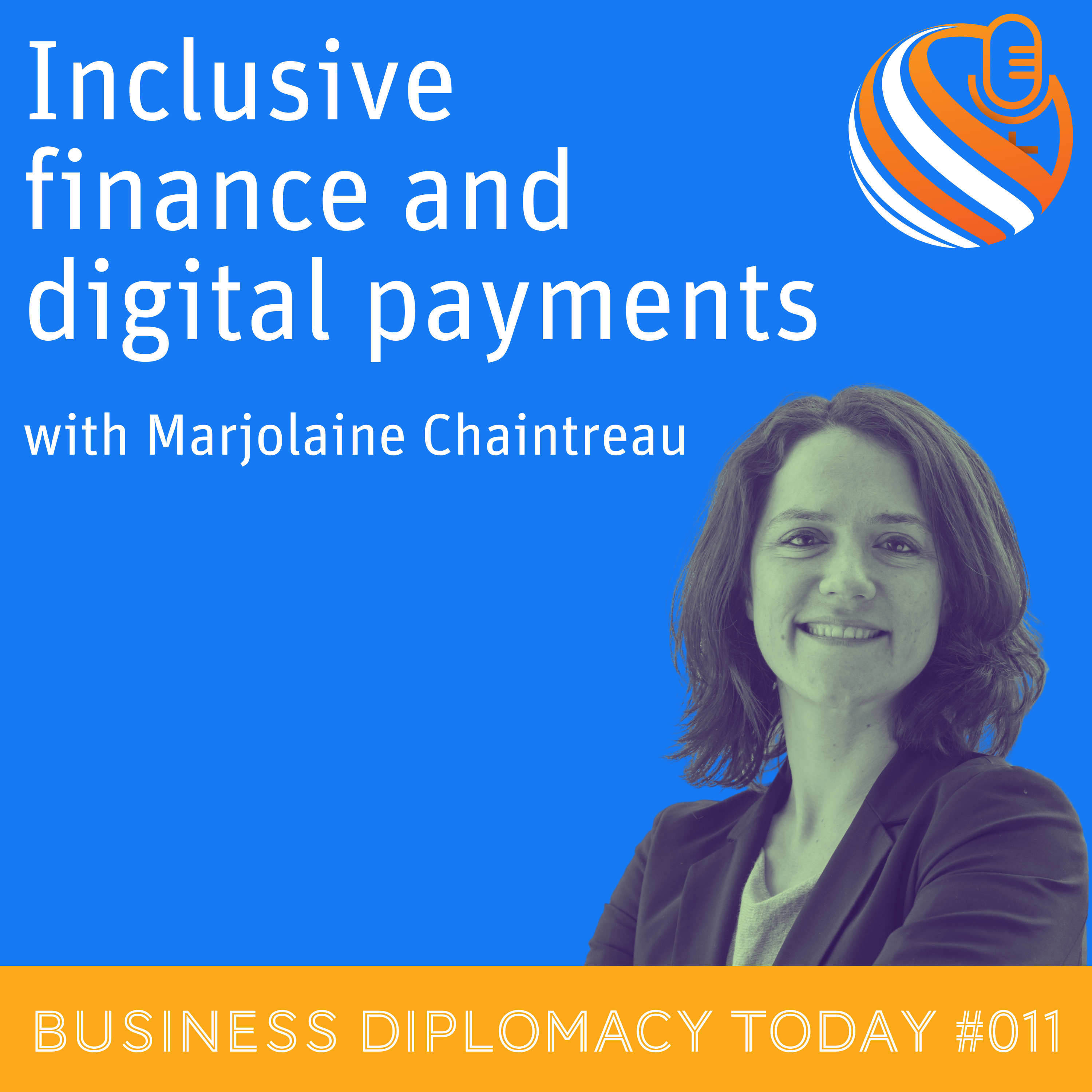
In this episode, Marjolaine Chaintreau, Head of Private Sector Digital Payment Innovation at the Better than Cash Alliance, and Matthias Catón discuss the evolution, importance, and impact of digital payments and, more broadly, access to financial services. The discussion examines how digital payments promote social inclusion and empowerment among individuals and the innovation and regulation ... Read more
Measuring and managing ESG performance
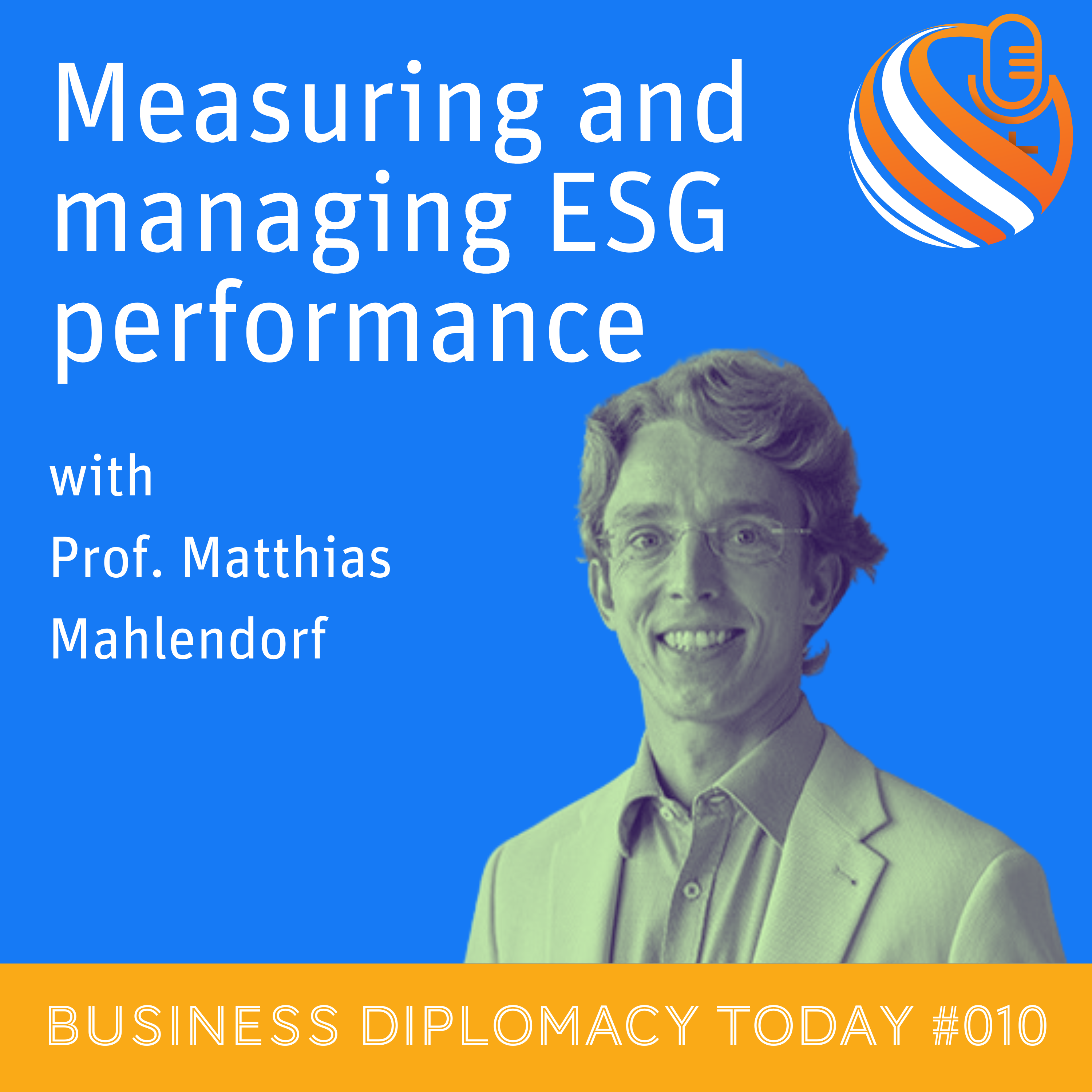
This episode of Business Diplomacy Today explores the importance of measuring external impacts in society and how companies can incorporate sustainability practices. Our guest expert, Matthias Mahlendorf, discusses the performance measurement for managing sustainability, performance, and digital transformation of management control. Topics include measuring social value, the benefits of sustainability for companies, normative aspects of ... Read more
Corporate strategies for emerging markets
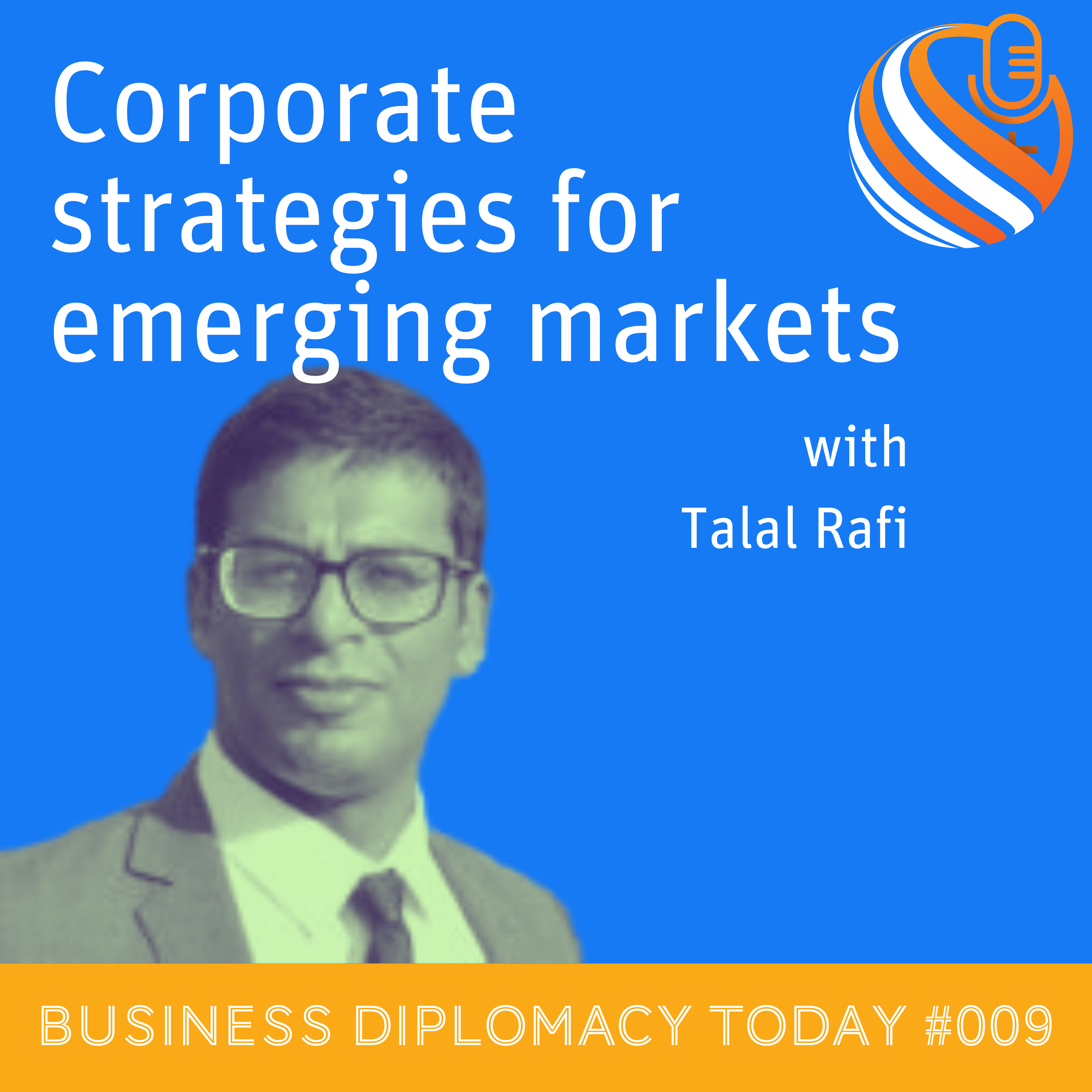
In this episode, Matthias Catón speaks with Talal Rafi, Senior Global Management Consultant at Deloitte and a Deloitte Global Economist Network member. The discussion investigates how markets, notably emerging markets, can navigate the current economic climate when developing corporate strategies. Talal highlights the importance of supply-chain diversification through different lenses, how democracy can influence investment ... Read more
Geoeconomics in the investment industry
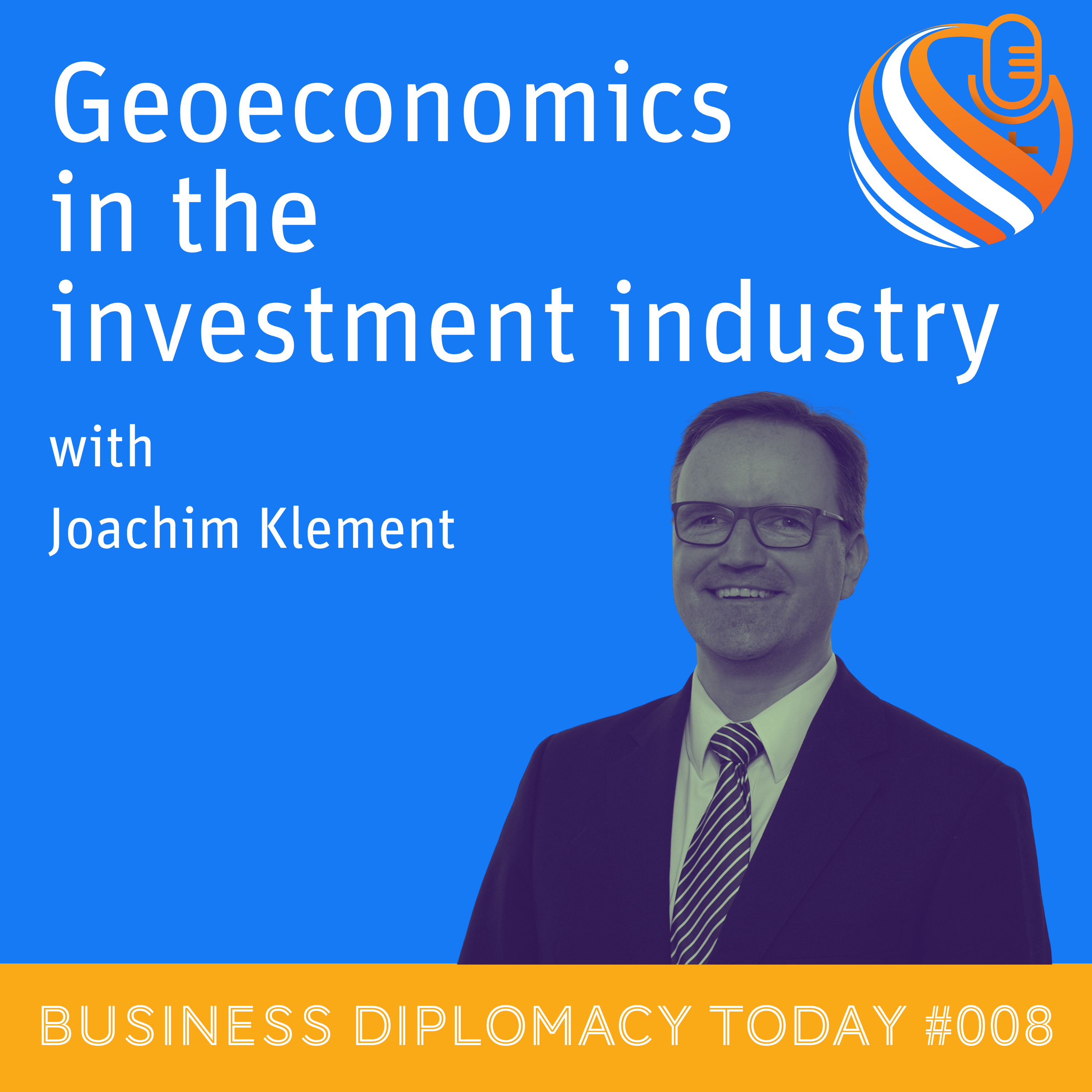
Hosted by Matthias Catón, today’s episode is in discussion with Joachim Klement, Head of Strategy, Accounting, and Sustainability at Liberum. We often hear about geopolitics, economics, and our globalized world. In this episode, Joachim introduces us further to geoeconomics. The discussion analyses changes in business models (notably since the pandemic) and the relationship between geopolitical ... Read more
Climate Diplomacy and Emerging Economies
Climate Change mitigation is discussed mainly on a political level between countries, both in multilateral fora such as the COP (Conferences of Parties), the G20, or bilaterally. Our guest Dhanasree Jayaram is an expert in these negotiations. She talks with Matthias Catón about different approaches to climate change in developed and developing countries. Developing and ... Read more
International sanctions
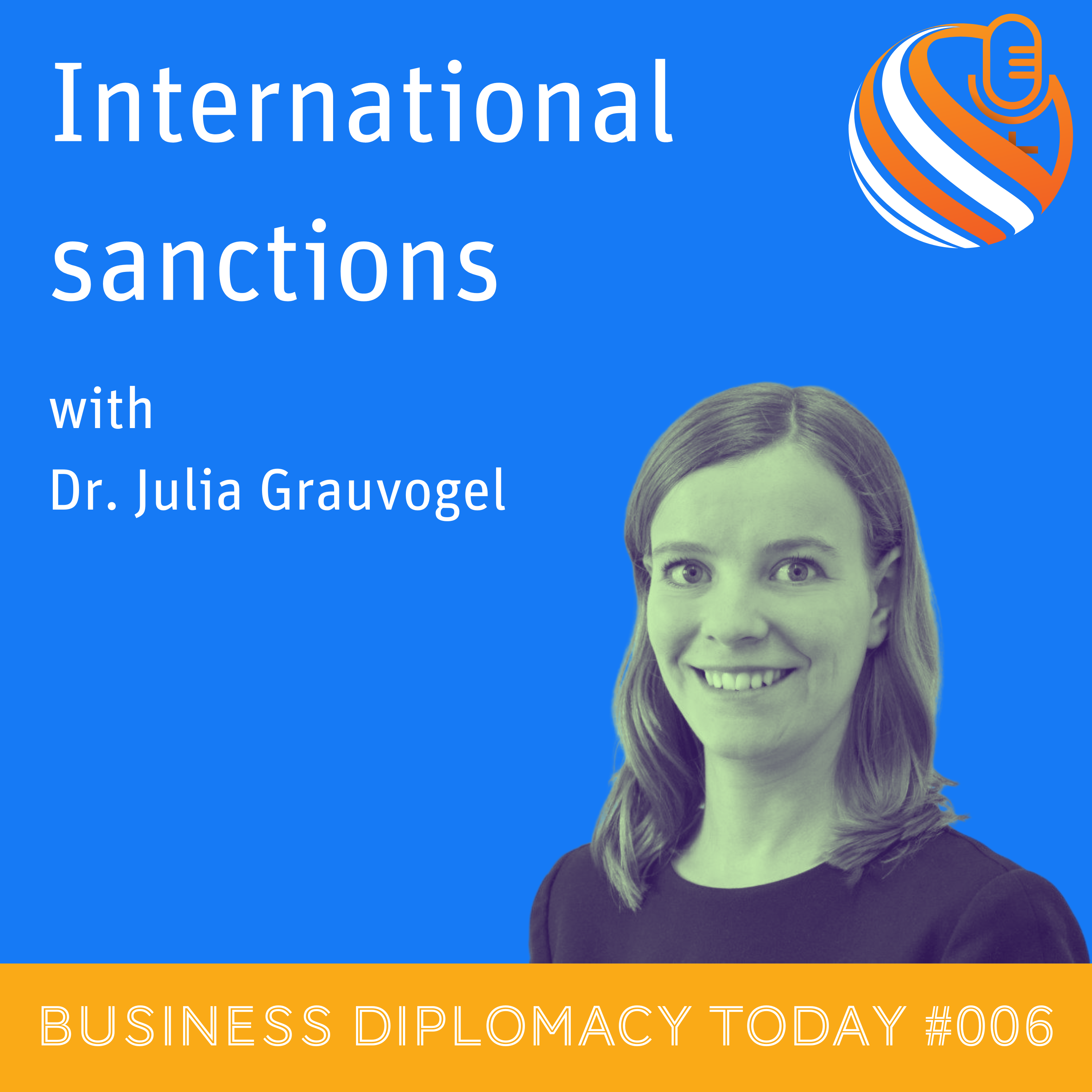
In this episode, Matthias Catón speaks with Julia Grauvogel, Senior Research Fellow at the German Institute for Global and Area Studies (GIGA). They discuss the implications of economic sanctions and talk about different types of sanctions and the ways to measure their effects on the “target” (the country receiving the sanctions) and the “sender” (the ... Read more
India and China
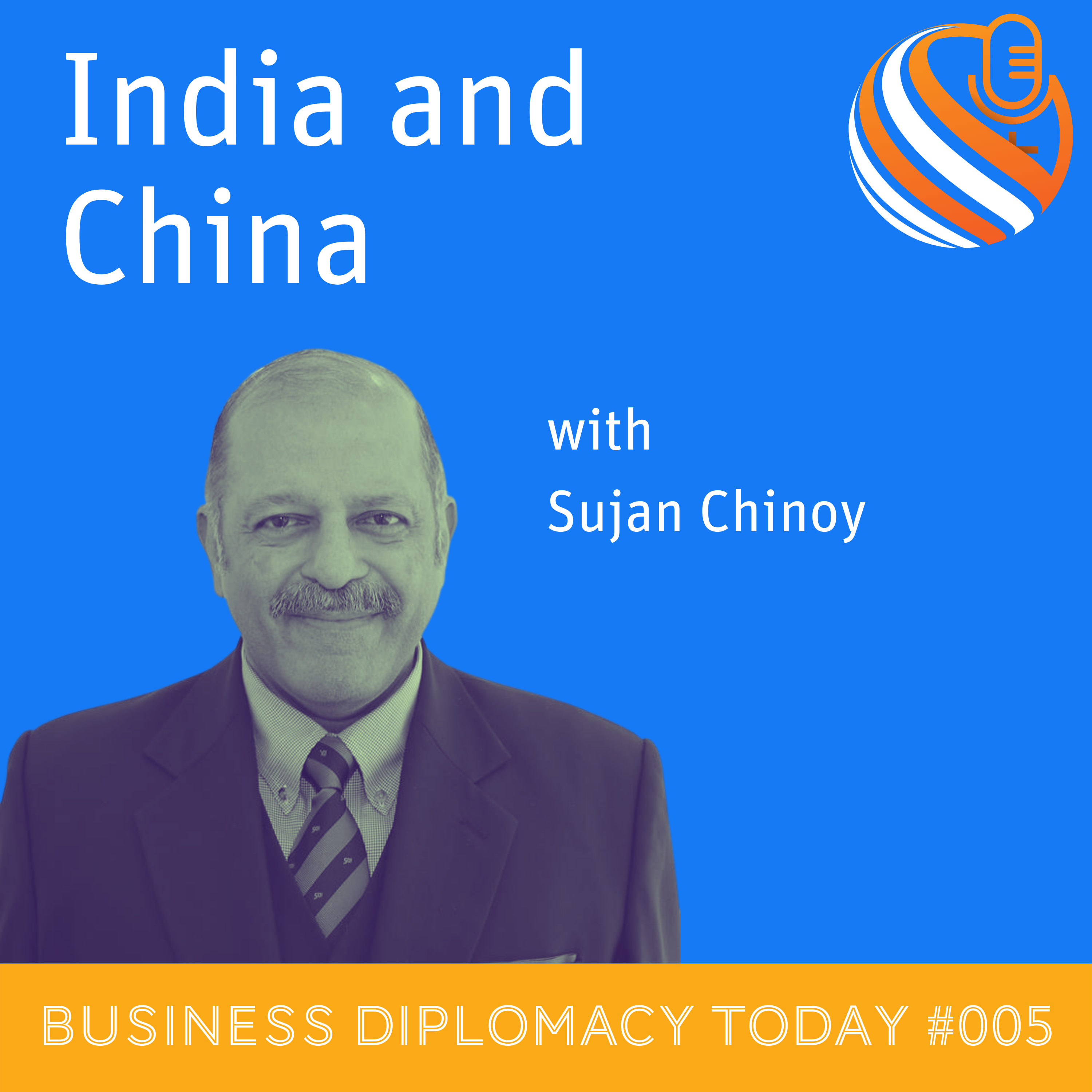
In this episode, Dr. Matthias Catón interviews Sujan Chinoy, the Director General of the Indian think tank IDSA. The former Ambassador is an expert in Indo-China relations. They discuss the current political situation and the ongoing border conflict between the two countries, which has been going on for decades but is again tense since 2020. ... Read more
Identify and manage political risks
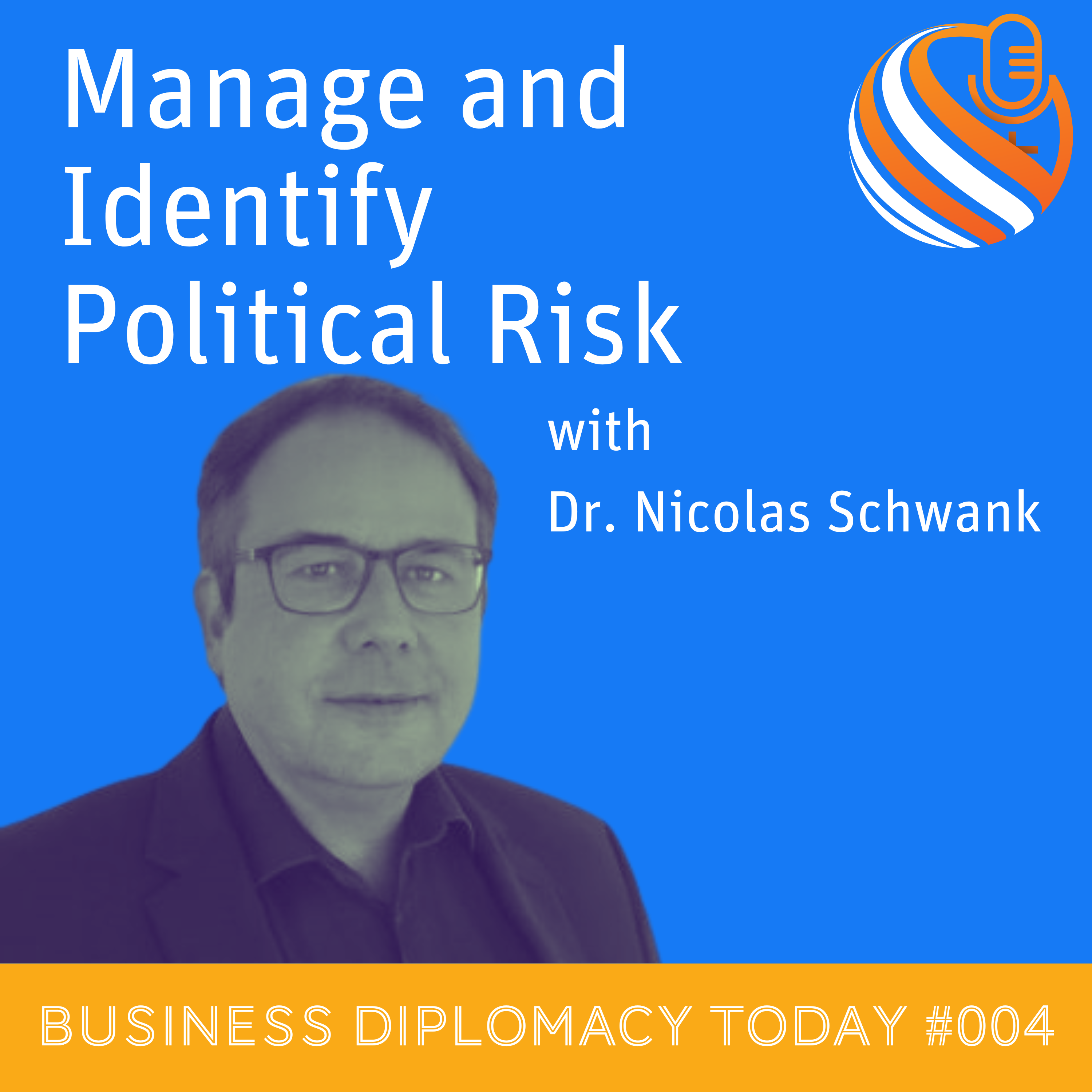
Nicolas Schwank is an expert in political risk. His company monitors and analyzes different risks and briefs business clients. Our host Matthias Catón and Nico (who met when they both studied and worked at the University of Heidelberg), discuss different political risks that can affect business and how business leaders can ensure that they stay ... Read more
ESG Taxonomies
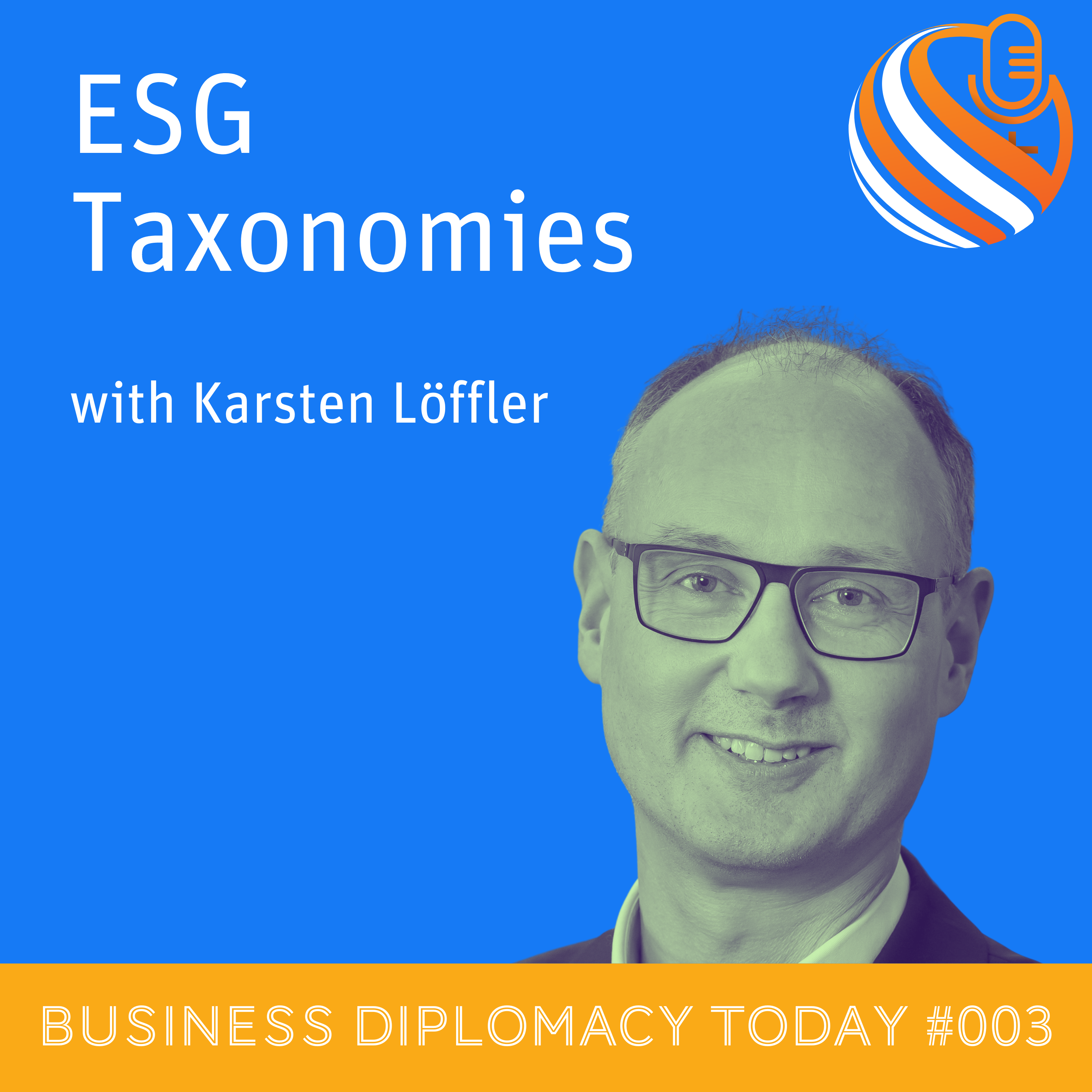
The host Matthias Catón and his guest Karsten Löffler talk about ESG Taxonomies. ESG stands for “Environmental, Social, and Governance” and essentially means how companies “behave” well as corporate citizens. Taxonomies measure this. The best known is the EU Taxonomy, but as we learn, it is by no means the only one in force or ... Read more
Doing business in China
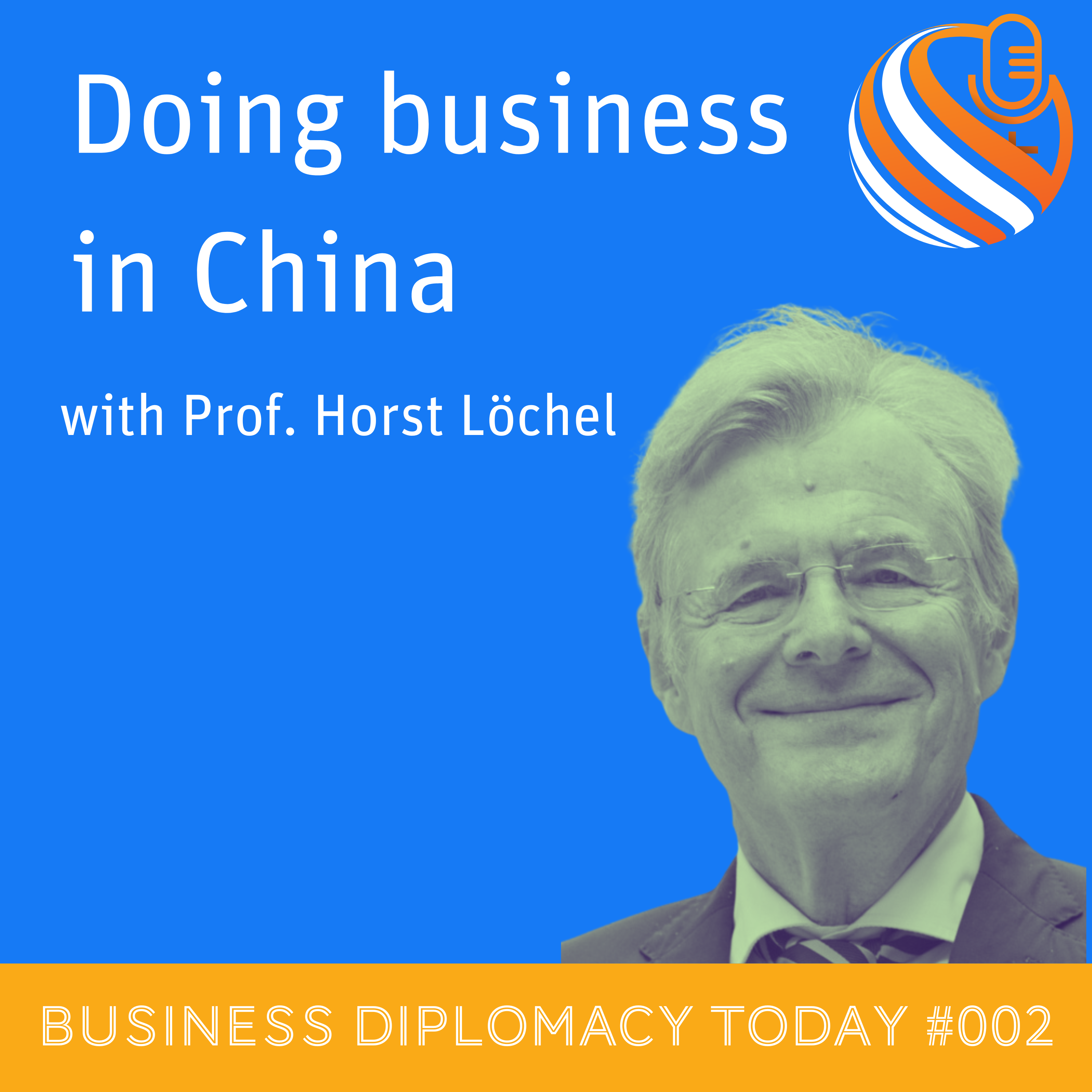
Our host Matthias Catón interviews Horst Löchel, a true expert on China. They talk about the prospects for international companies to do business in China today. What is different from ten years ago? What are the risks, and what are the opportunities? And what are the specific challenges of operating in a country with an ... Read more
Social media in global affairs
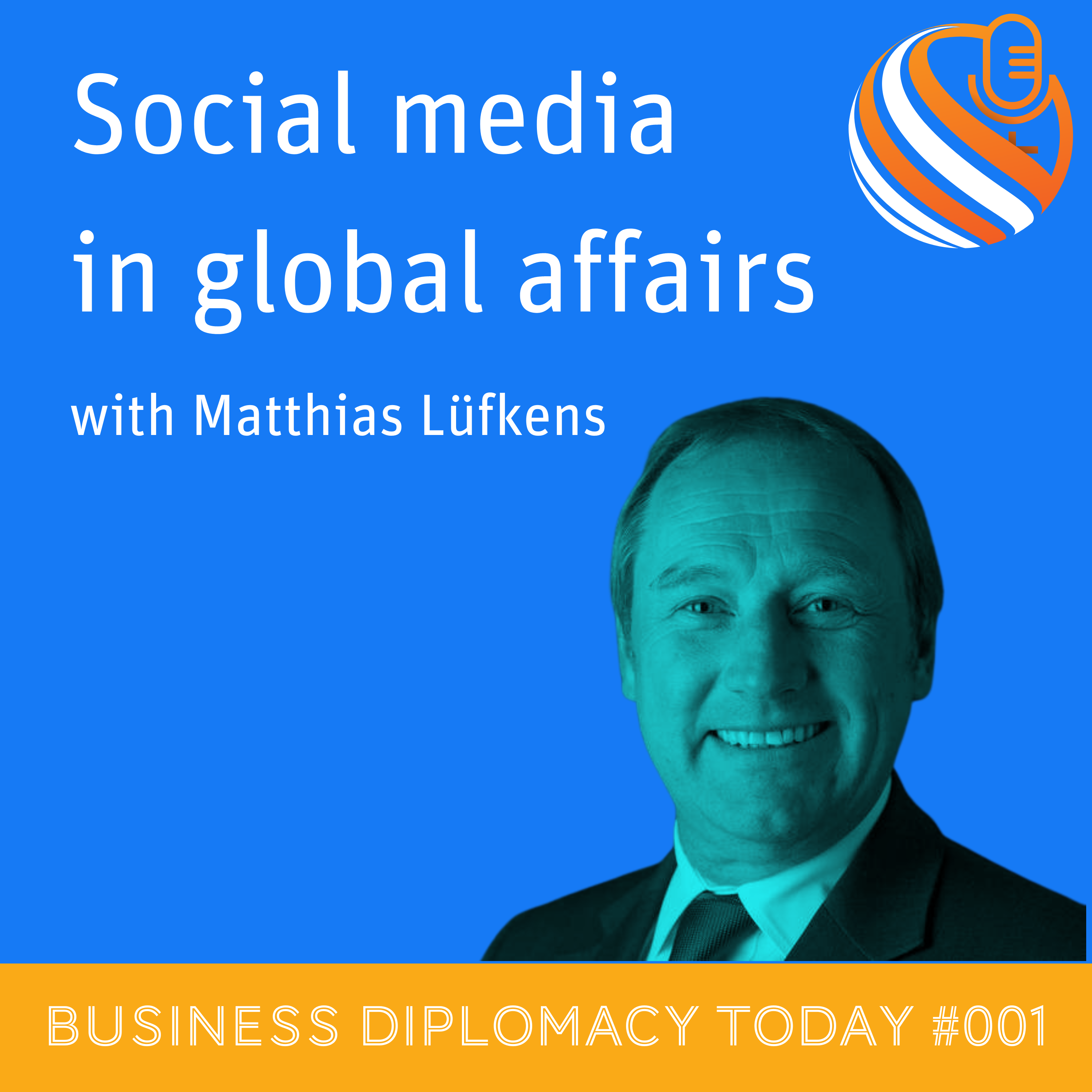
In this episode, our host Matthias Catón interviews Matthias Lüfkens, a veteran social media expert. They talk about using social media as a means of public diplomacy. How do governments and world leaders use it, what should they avoid, and why can it be such a powerful tool? Of course, they also discuss how business ... Read more
